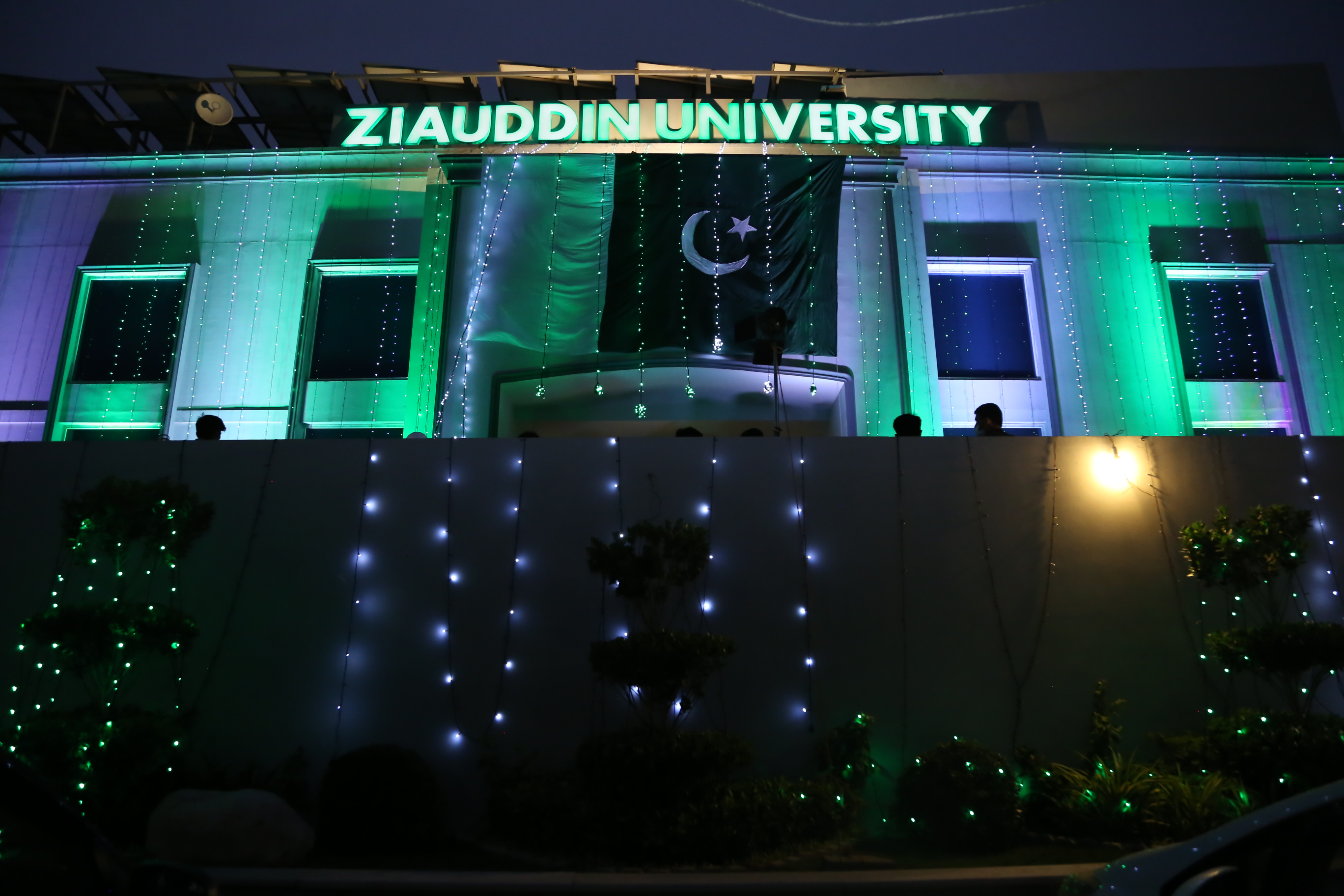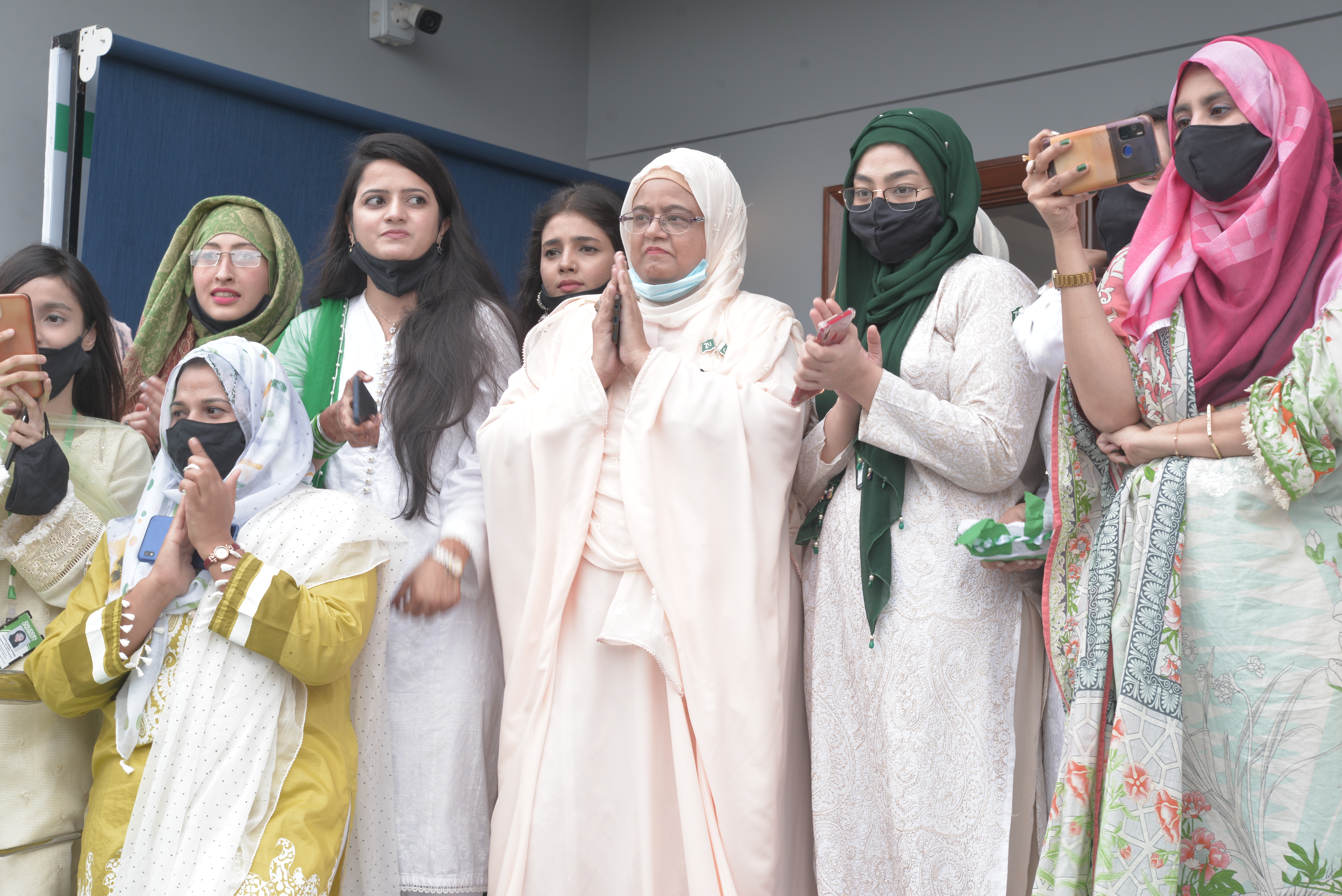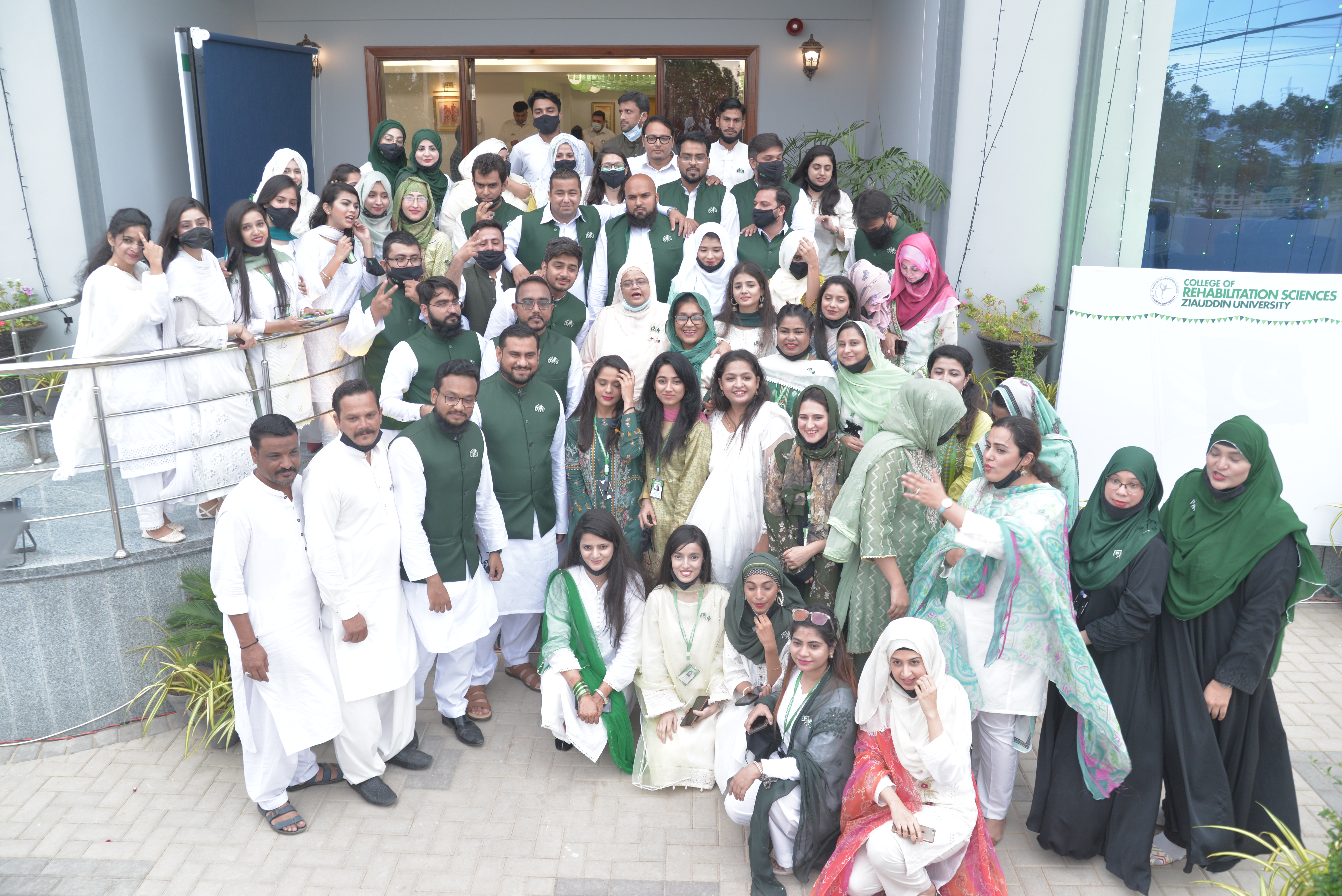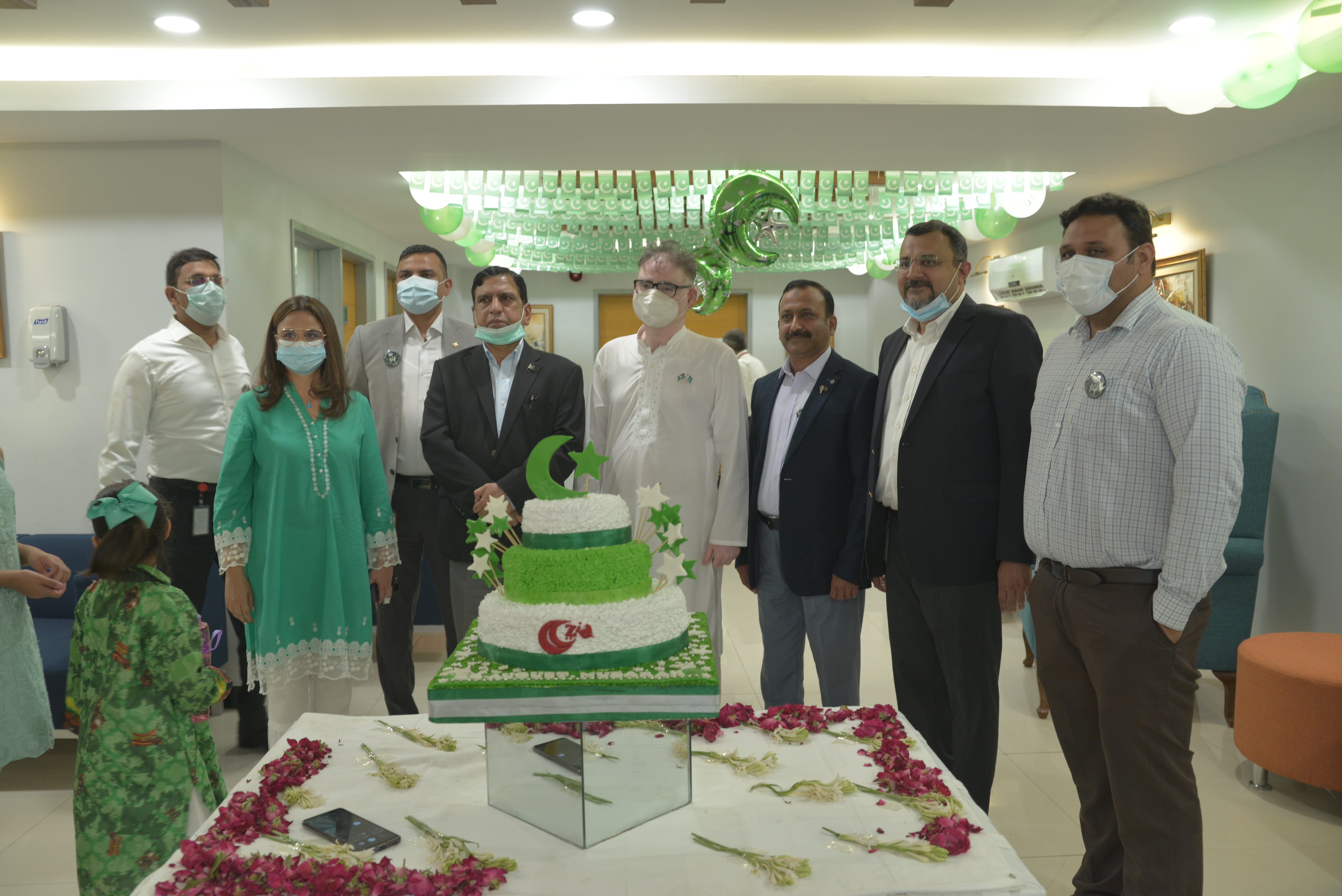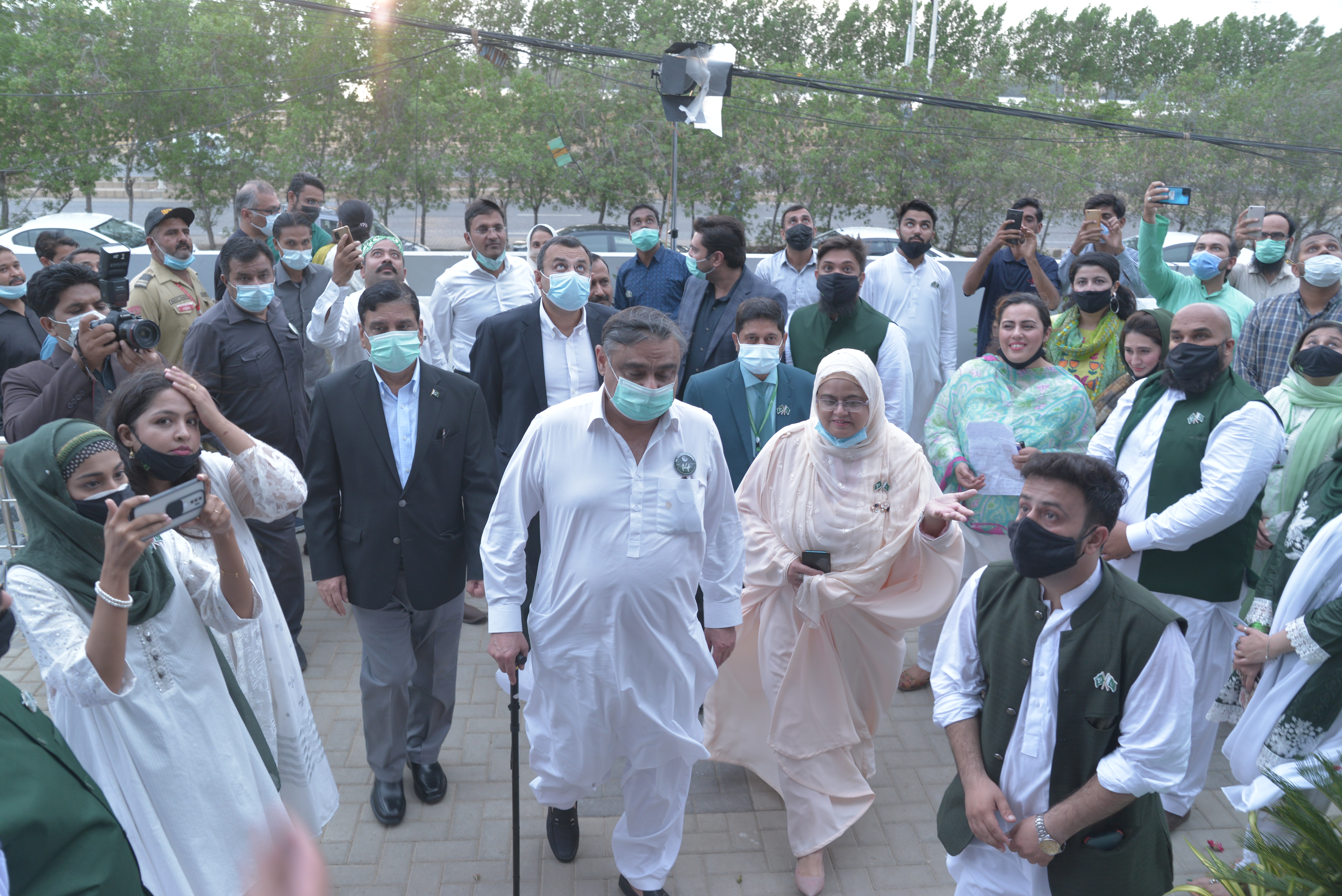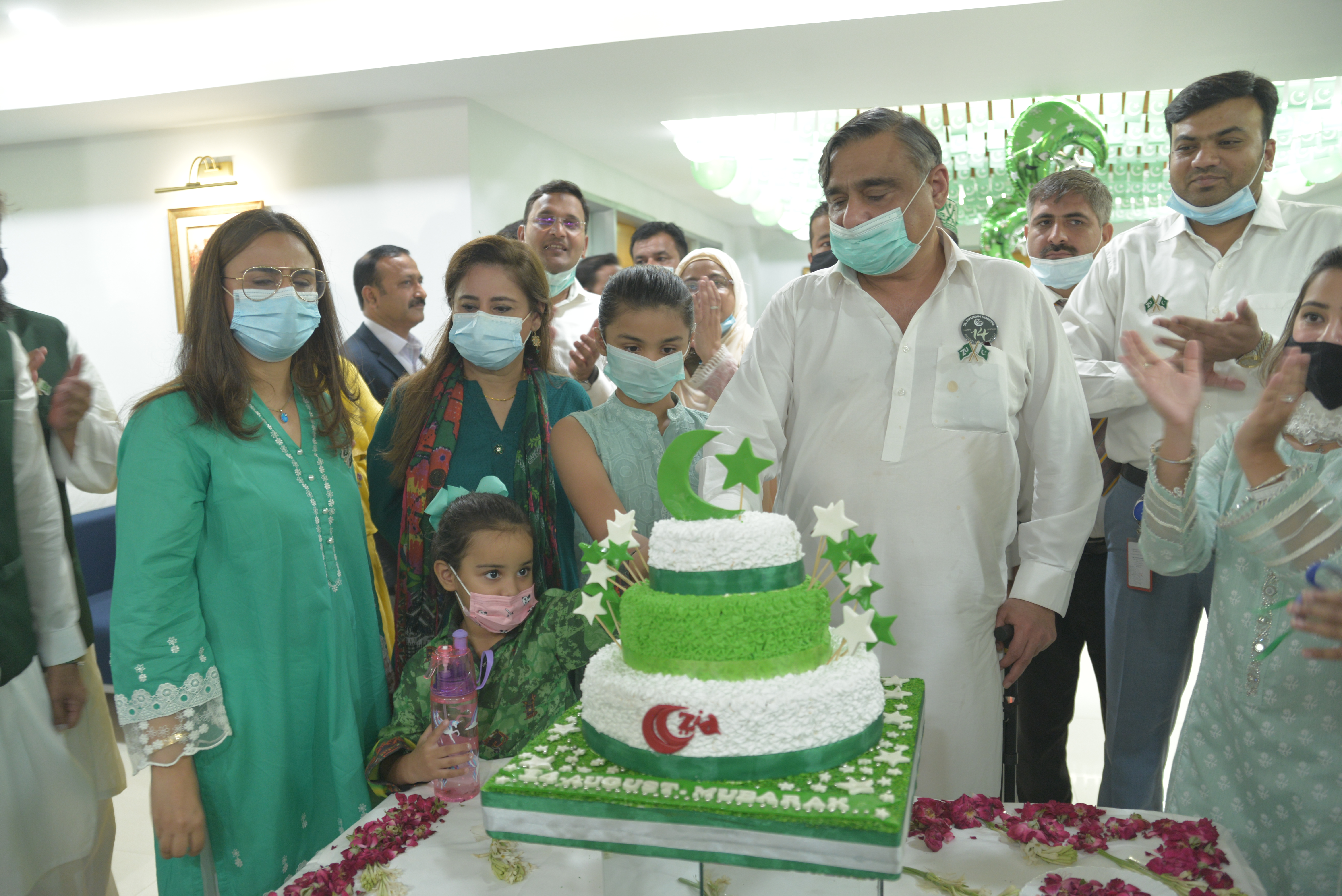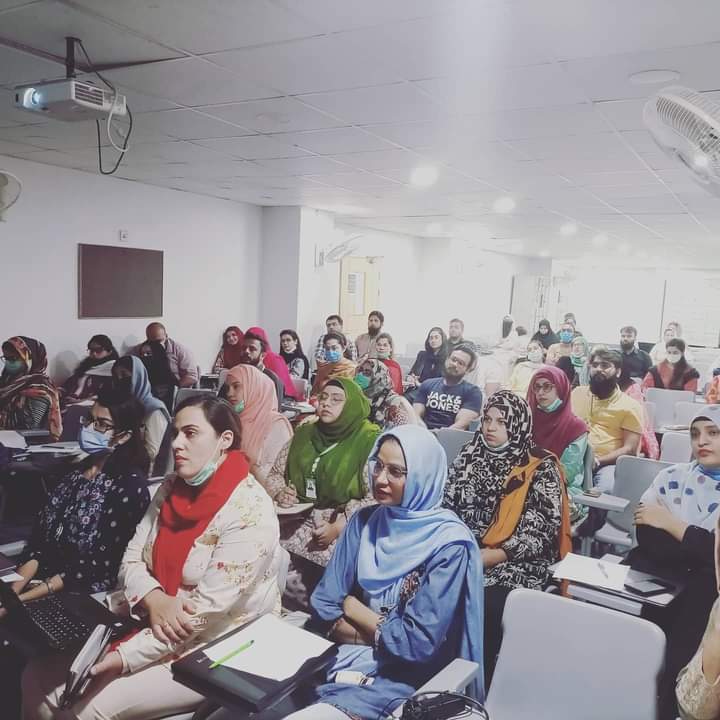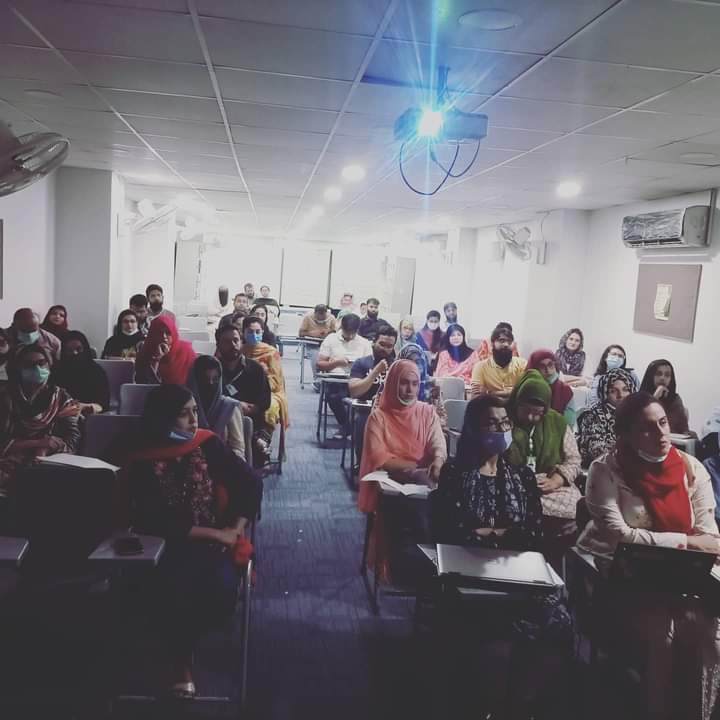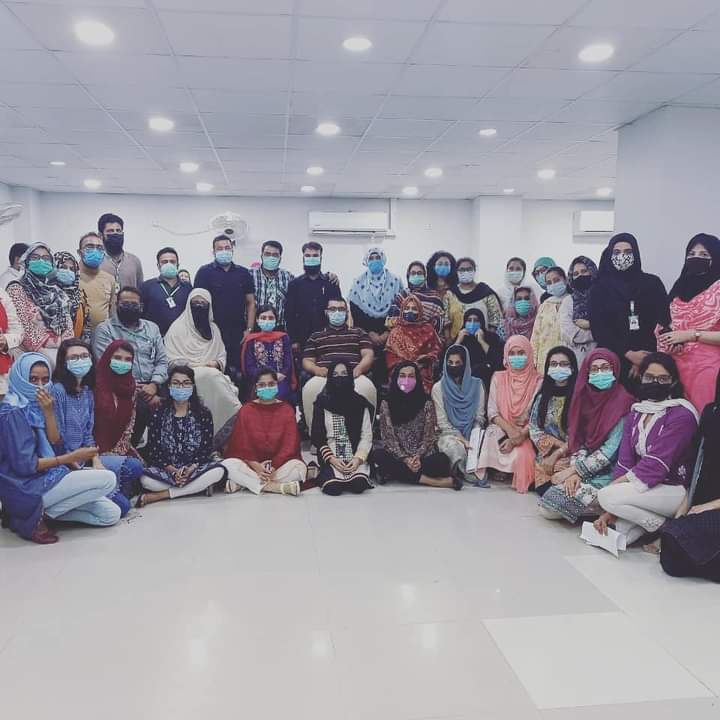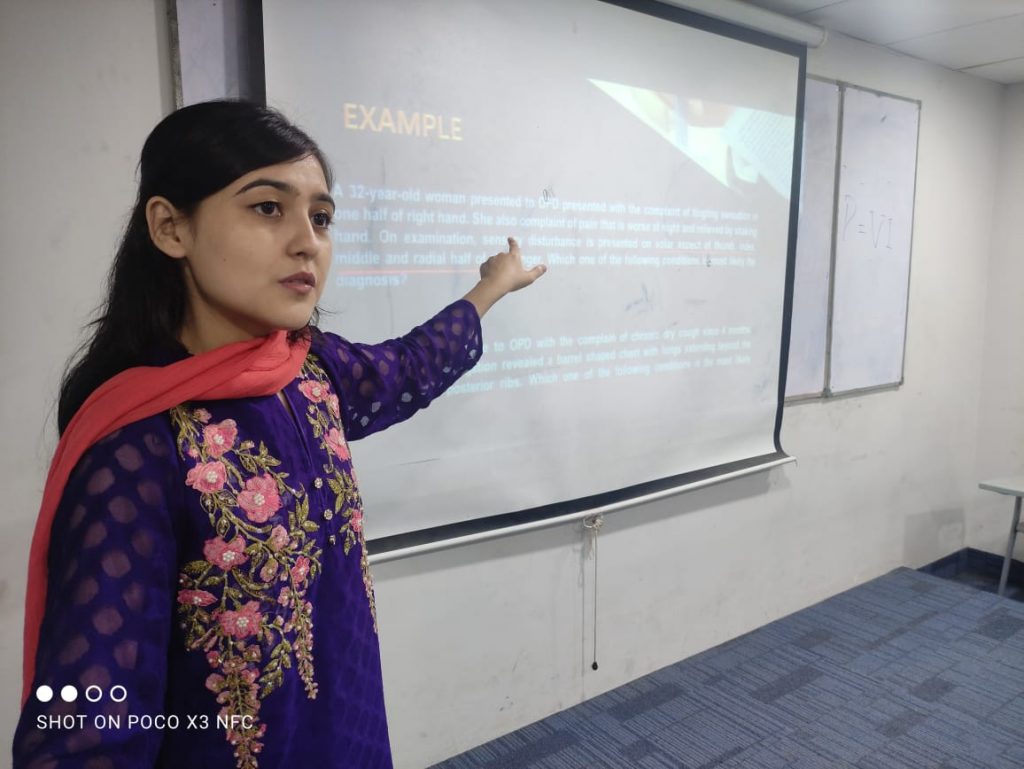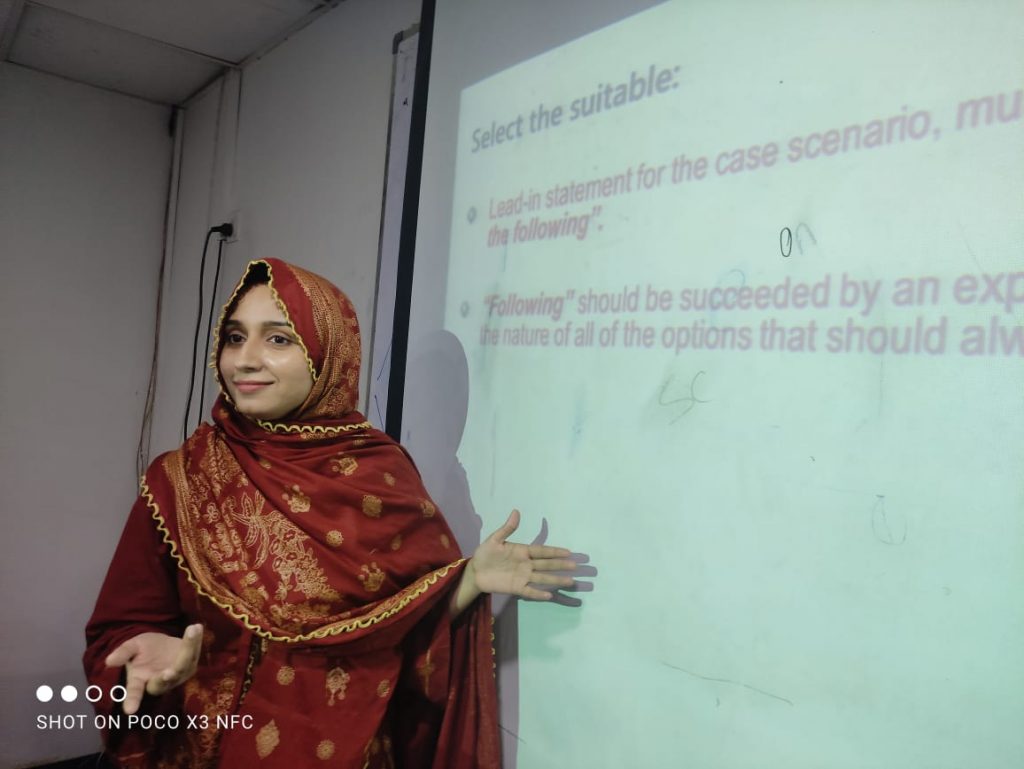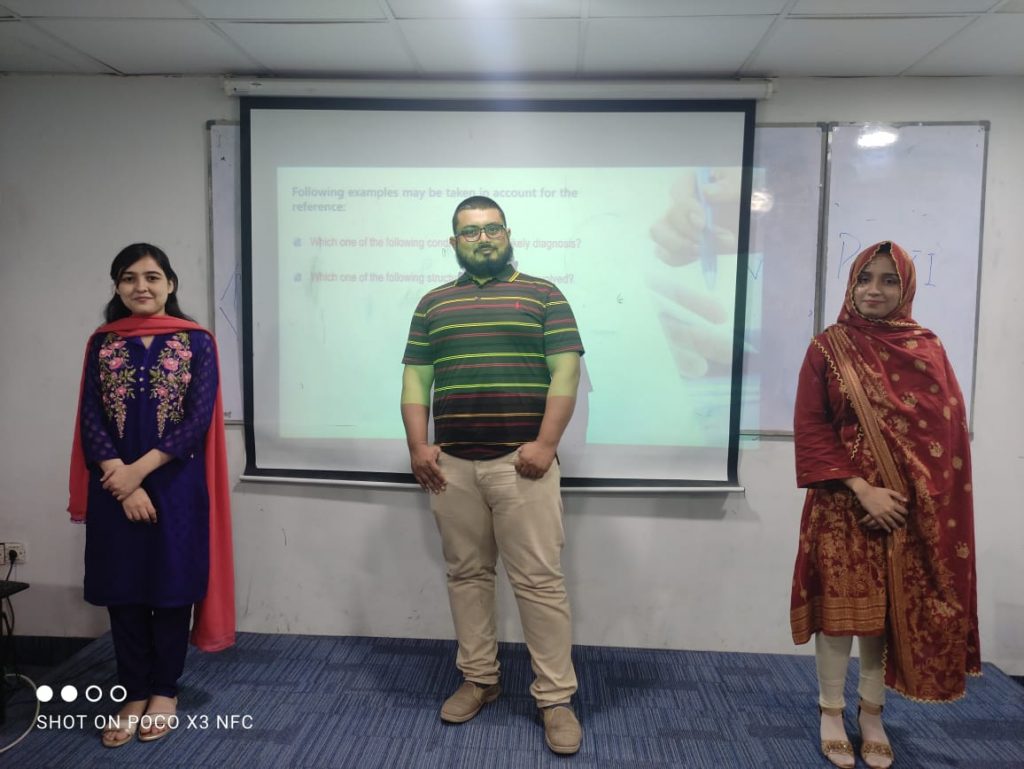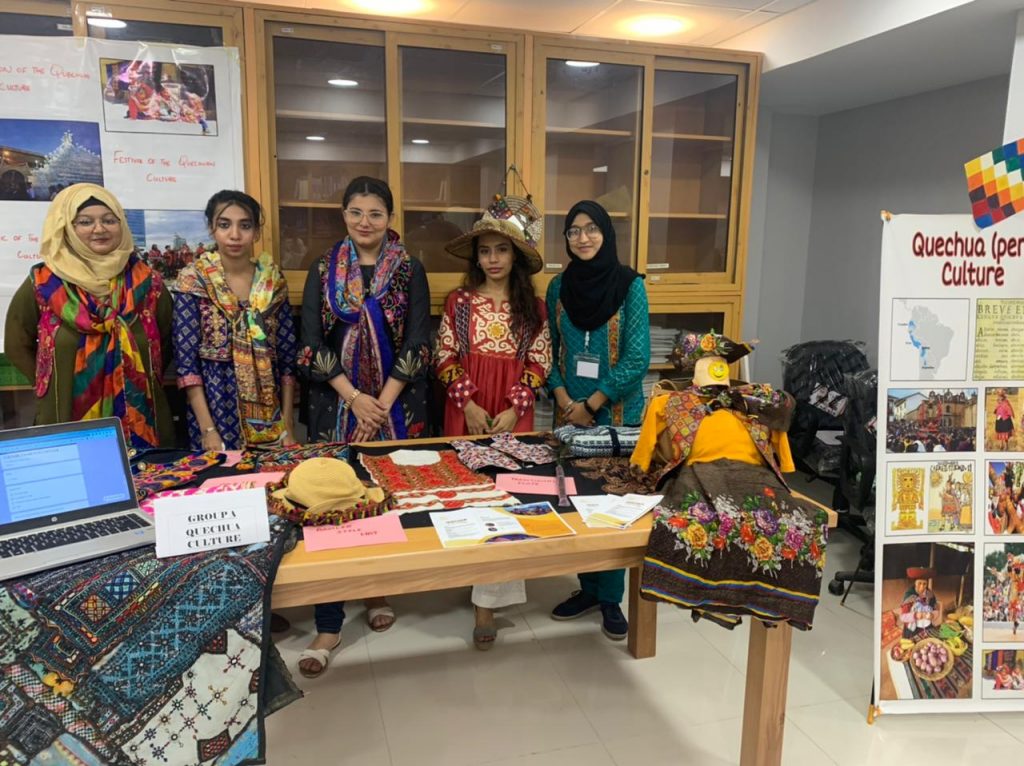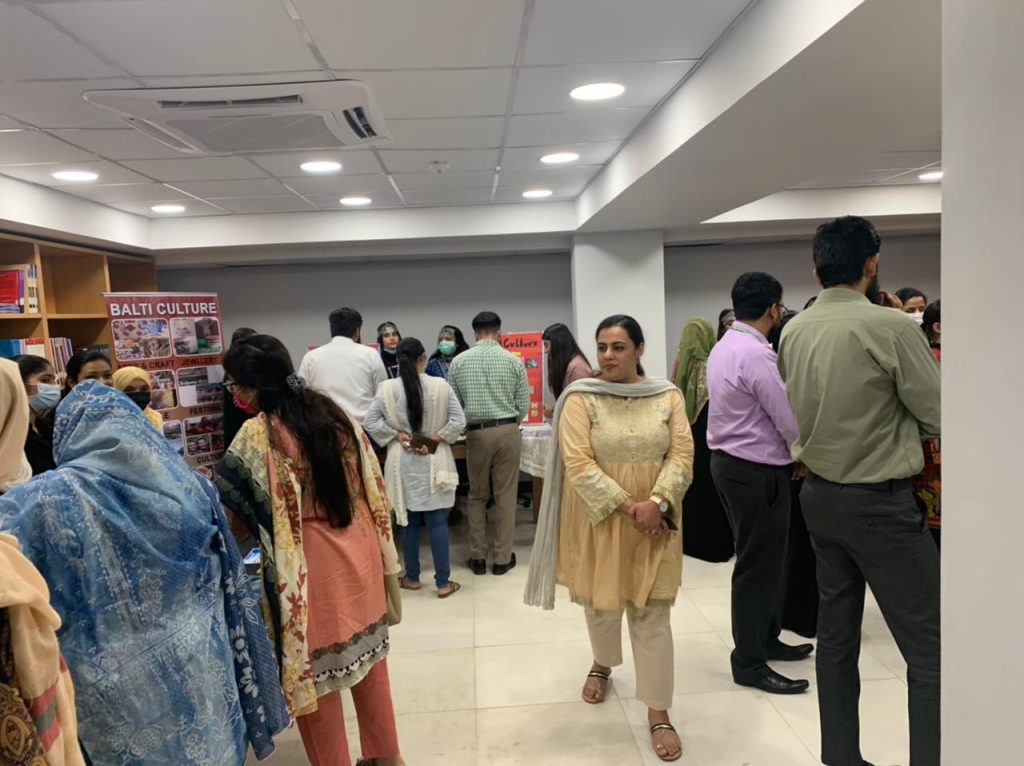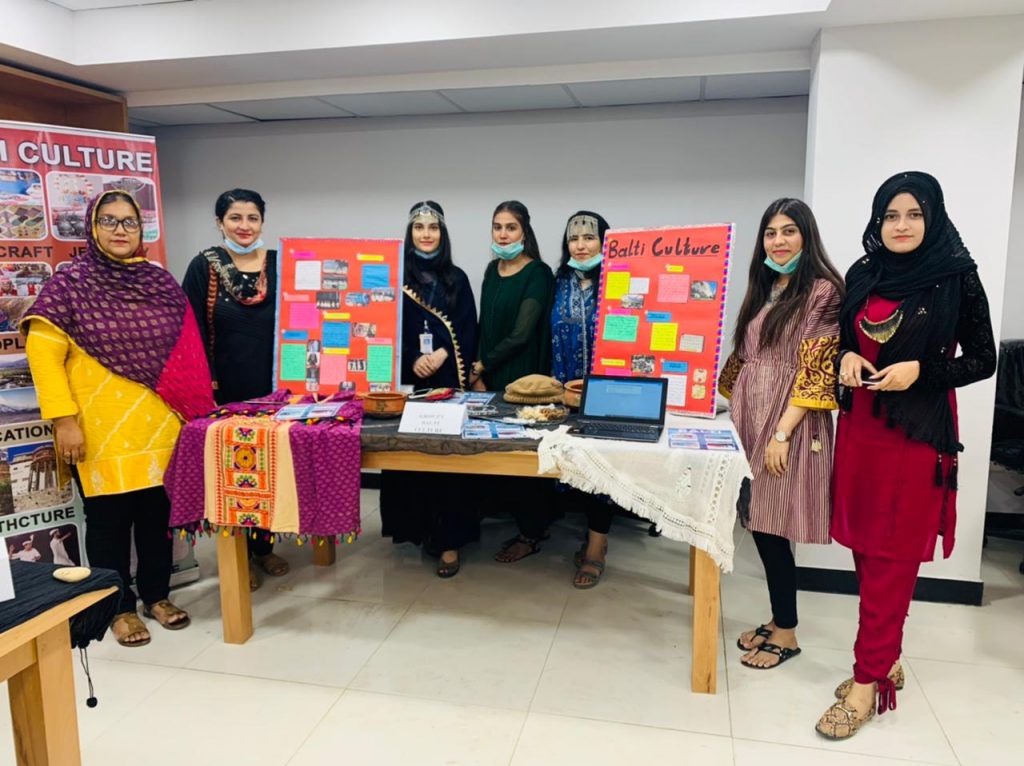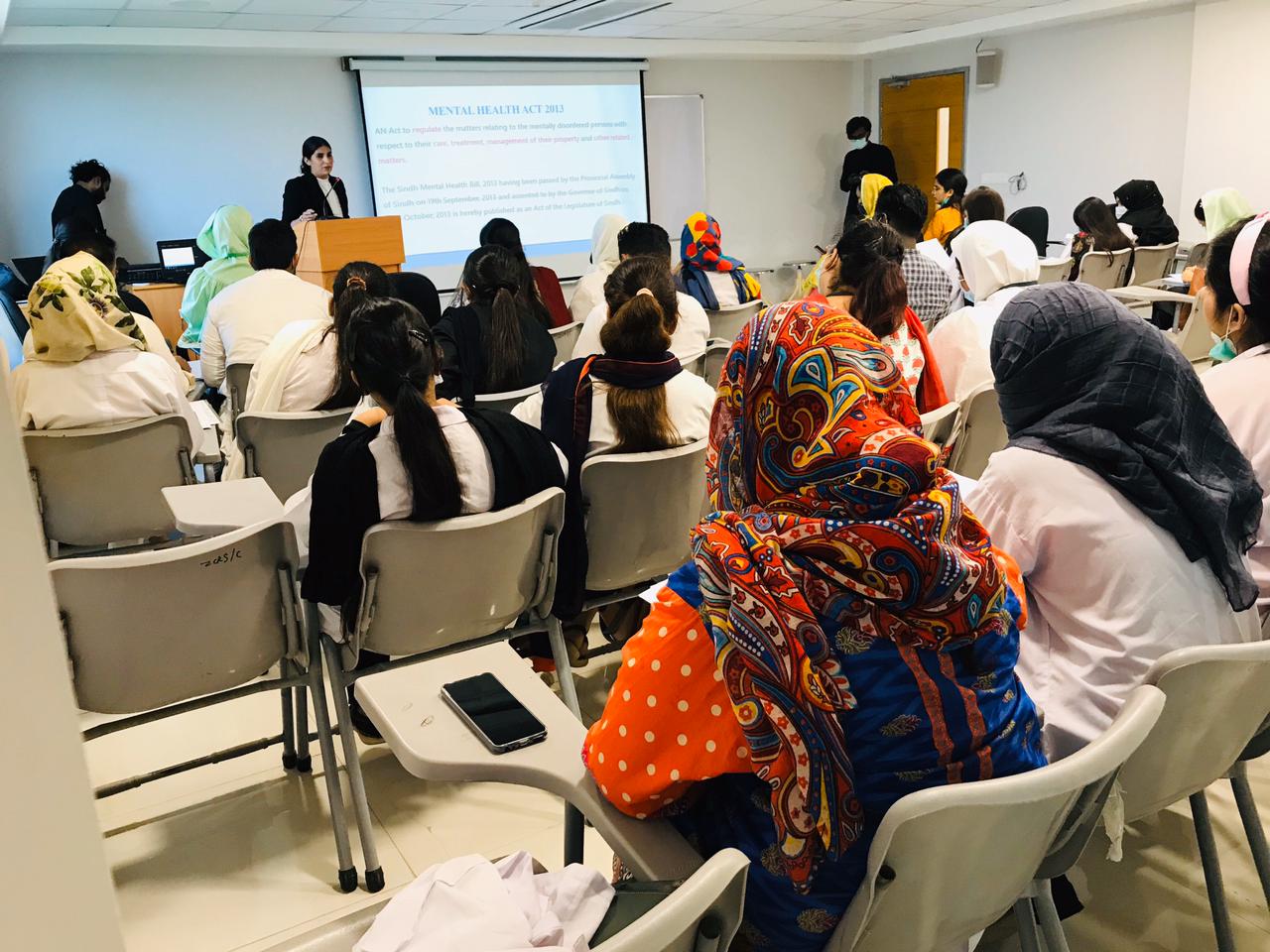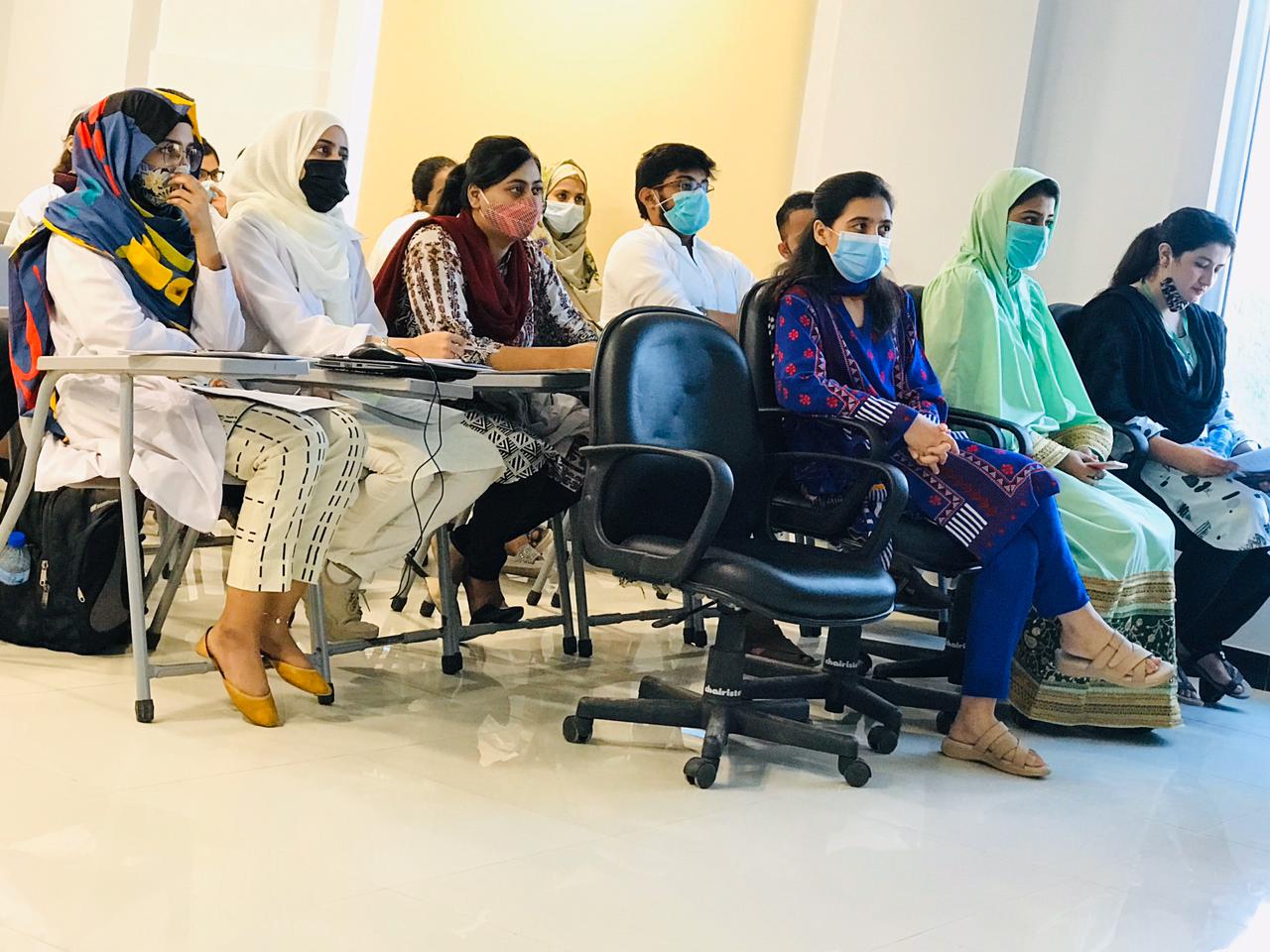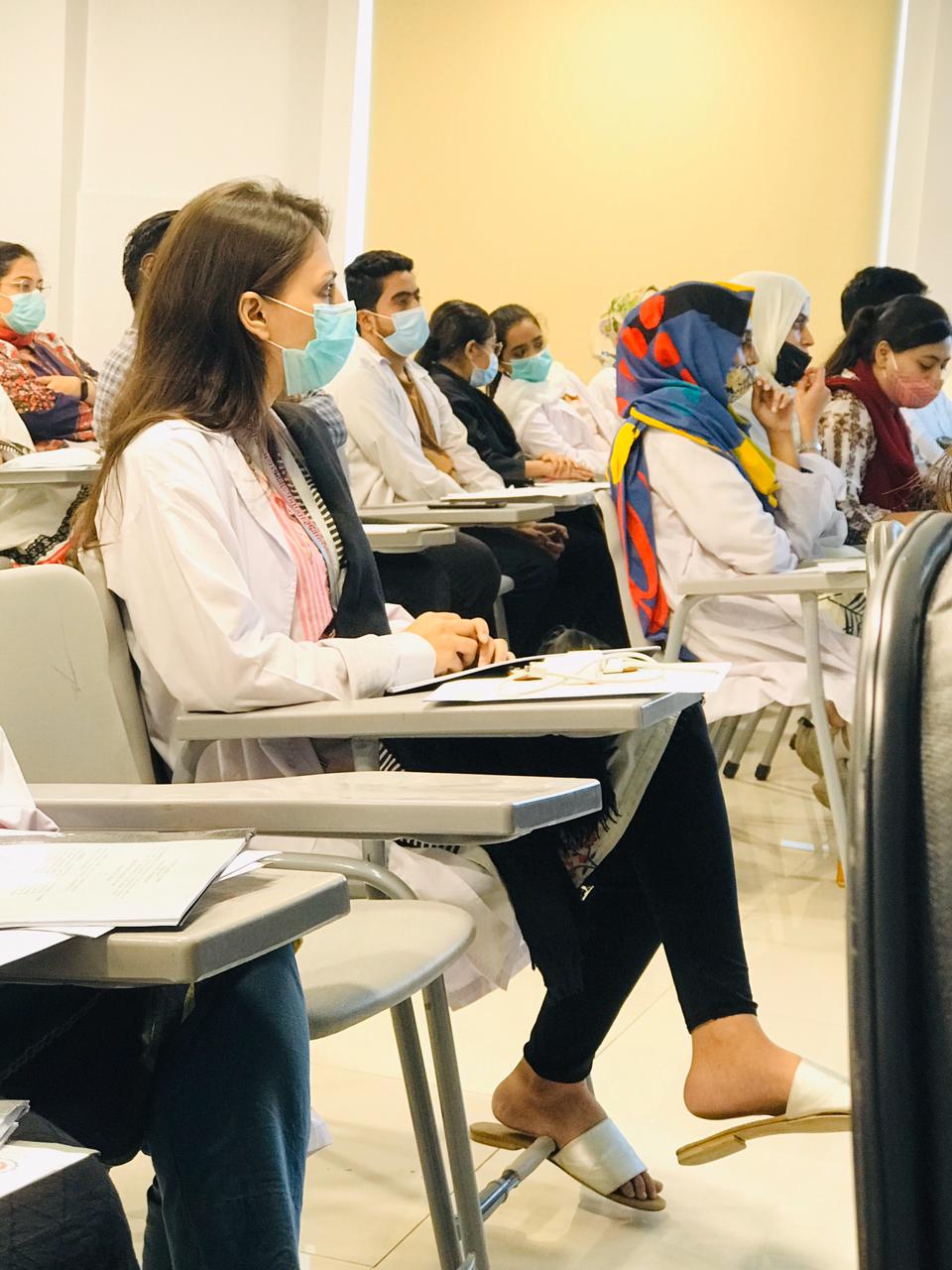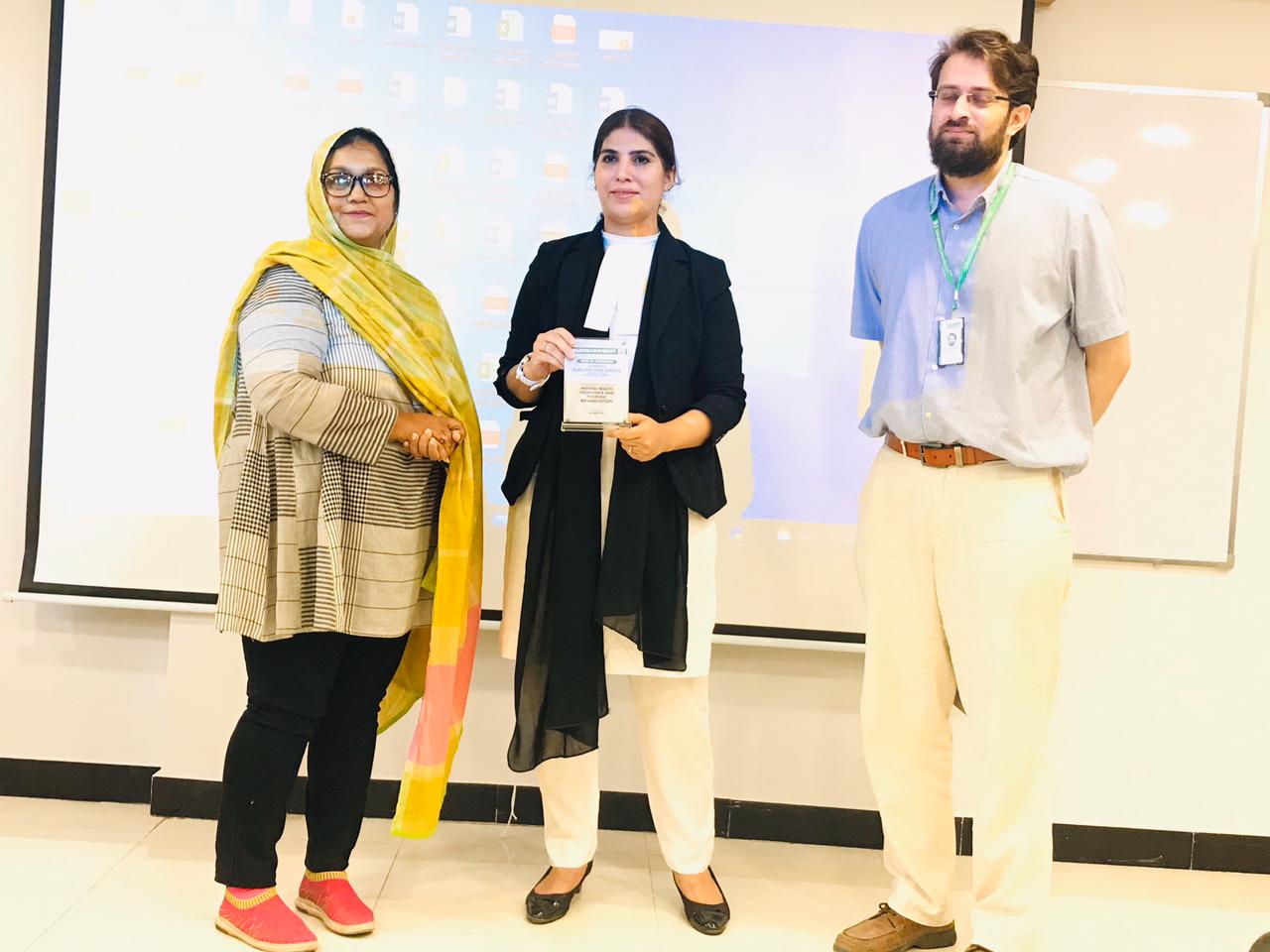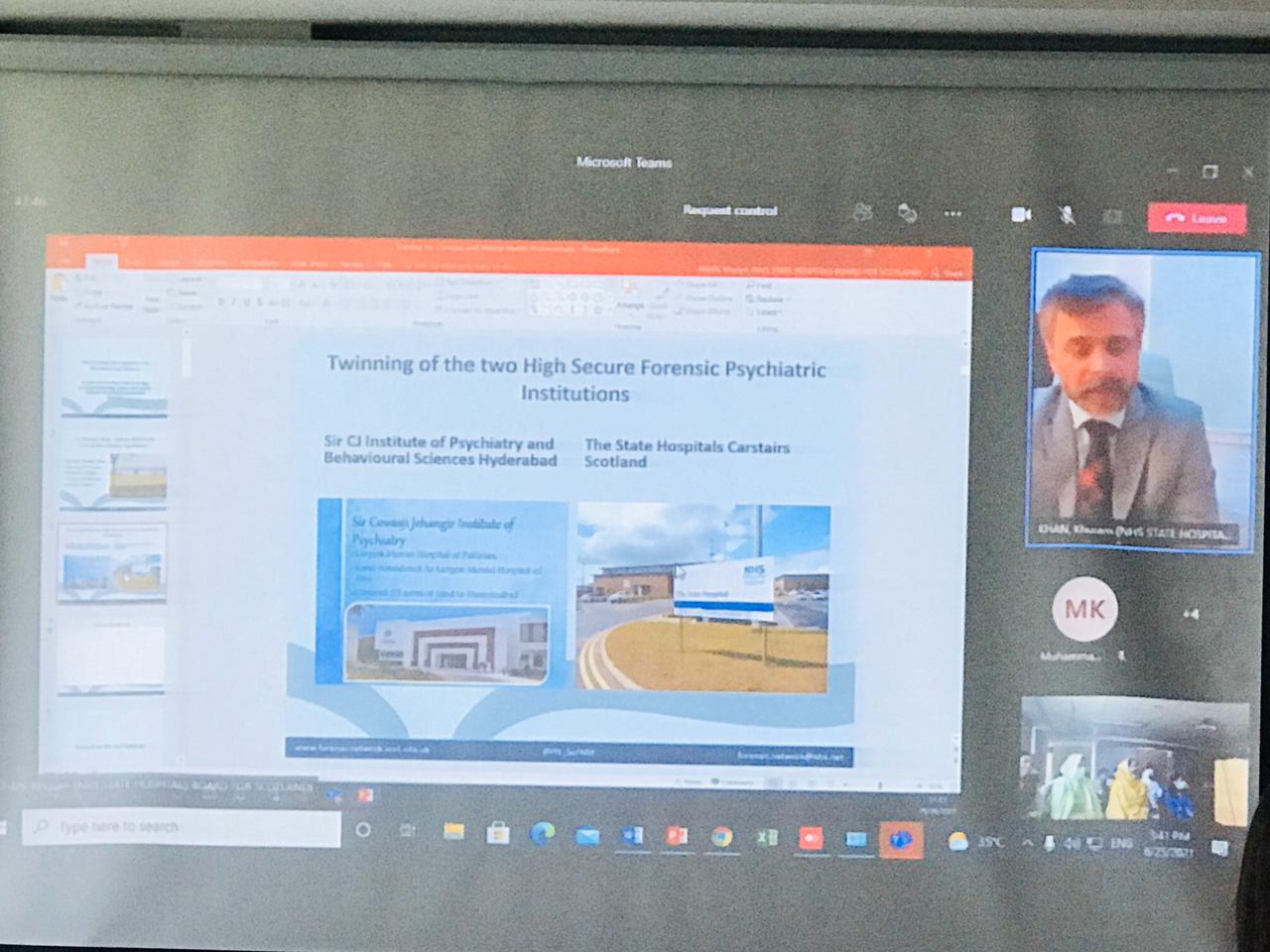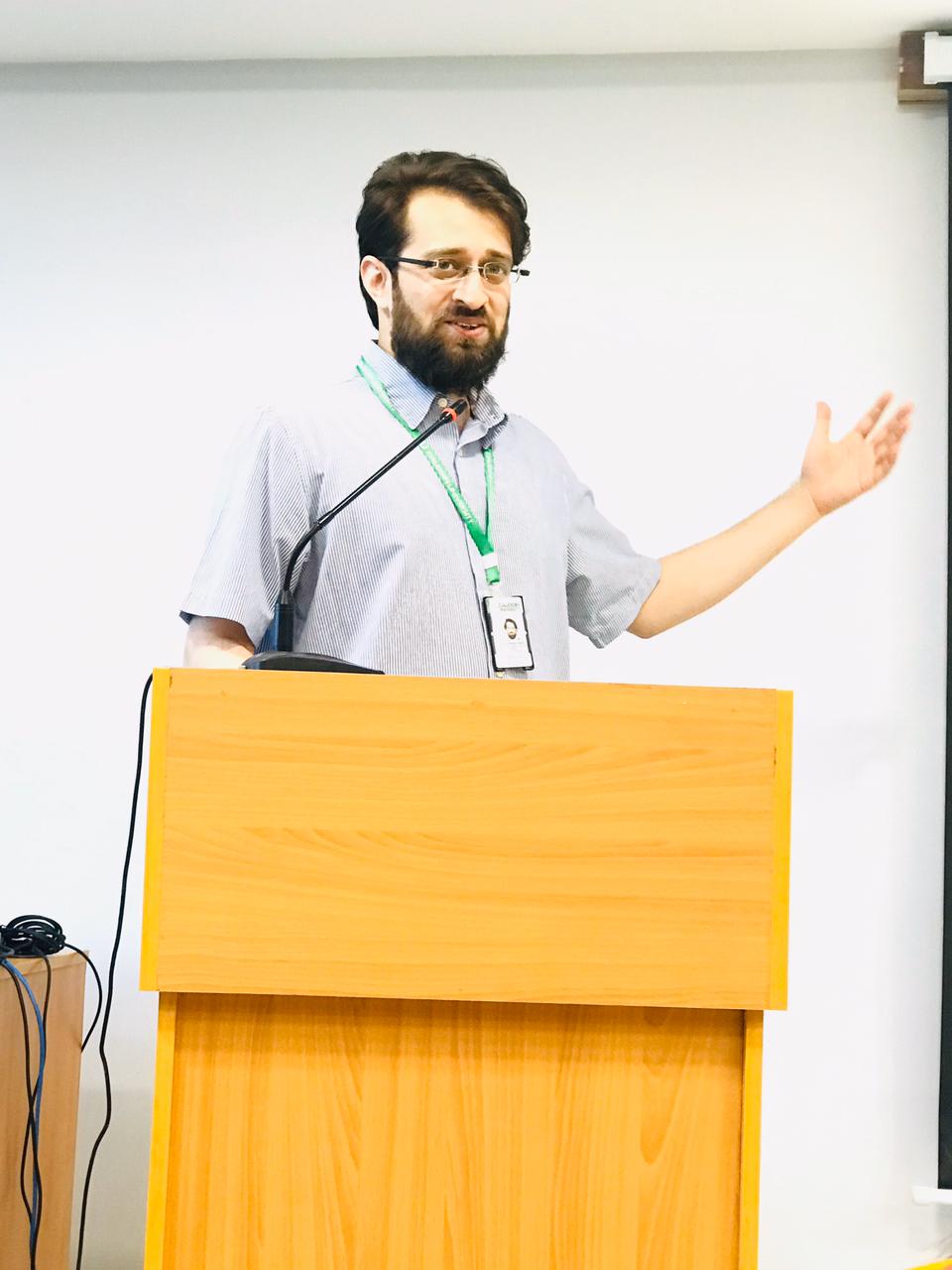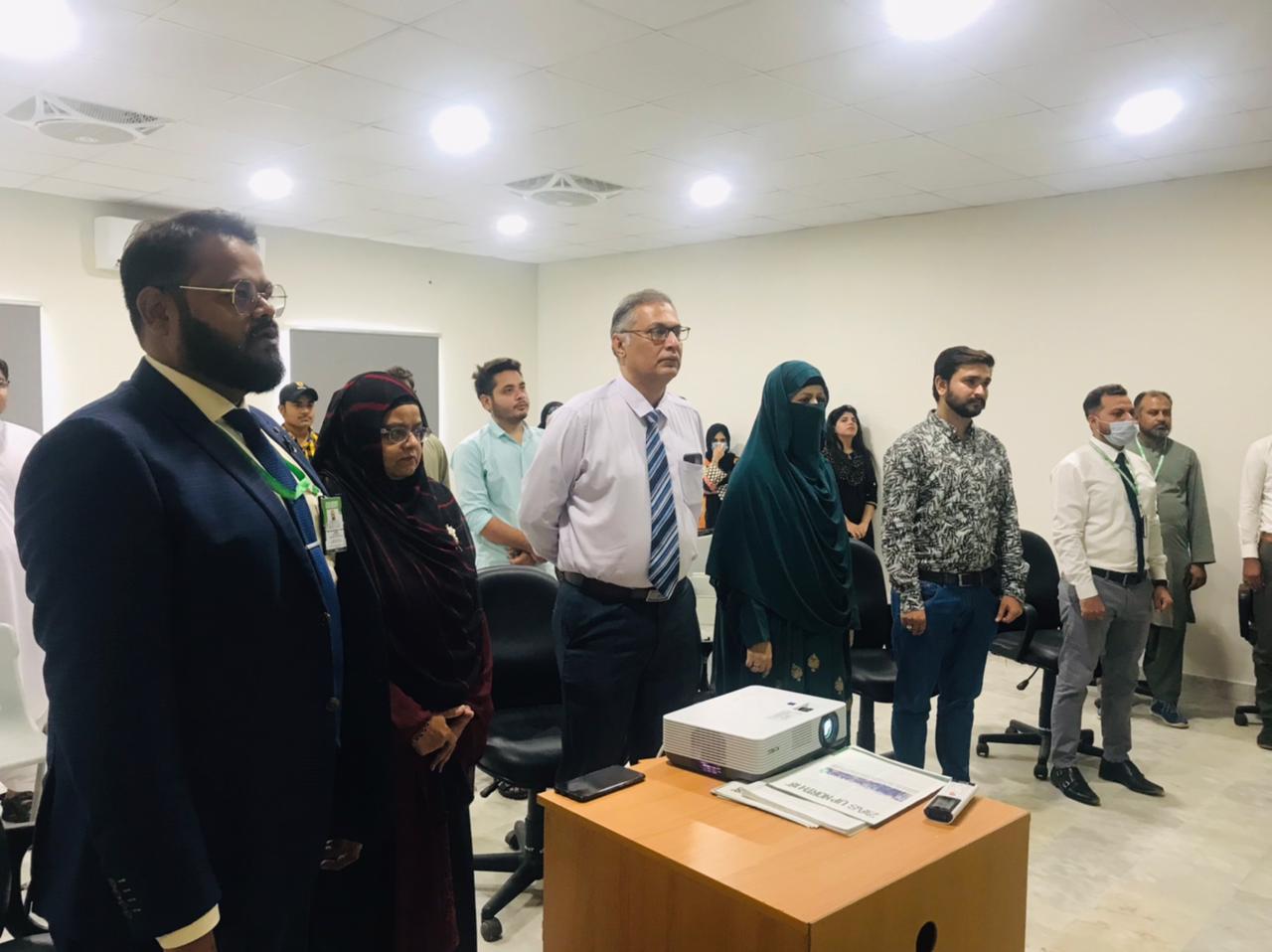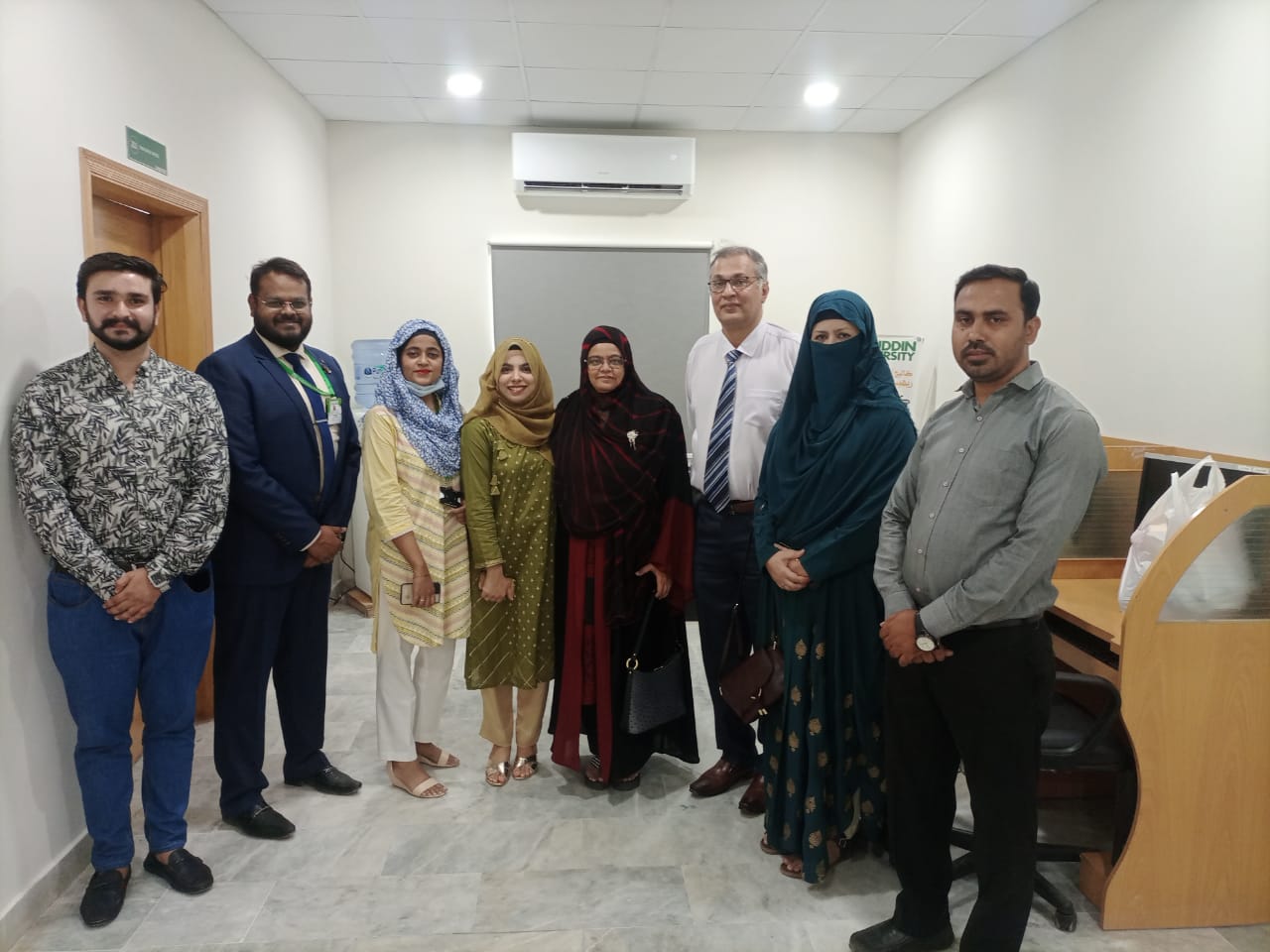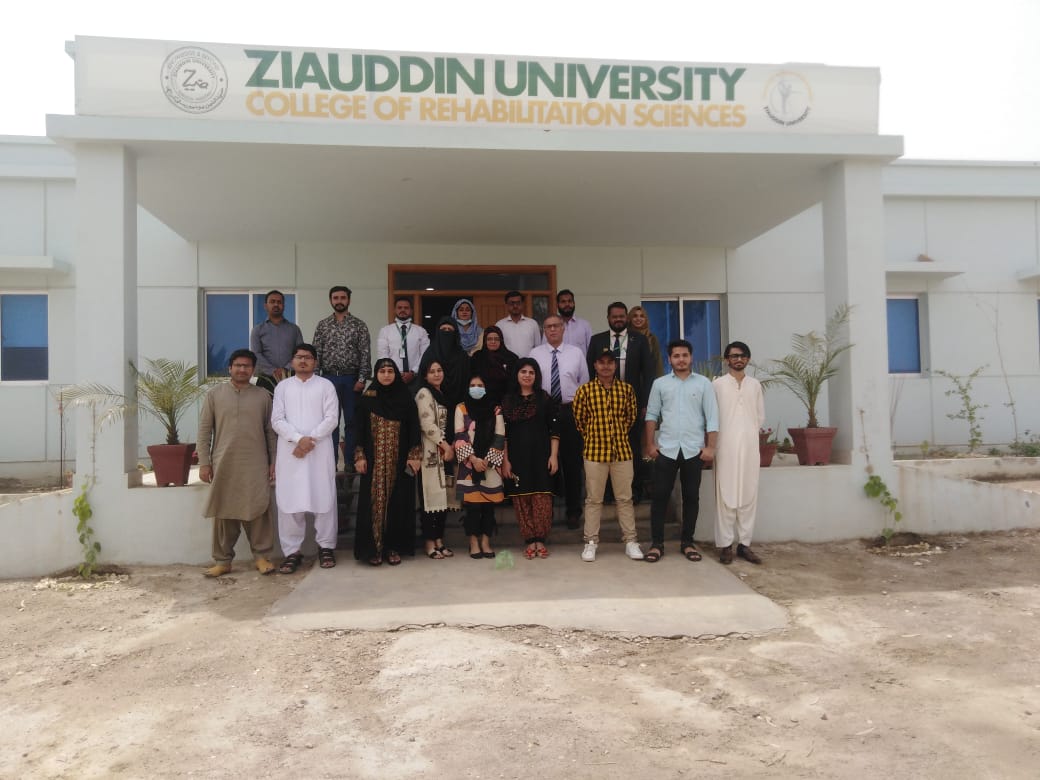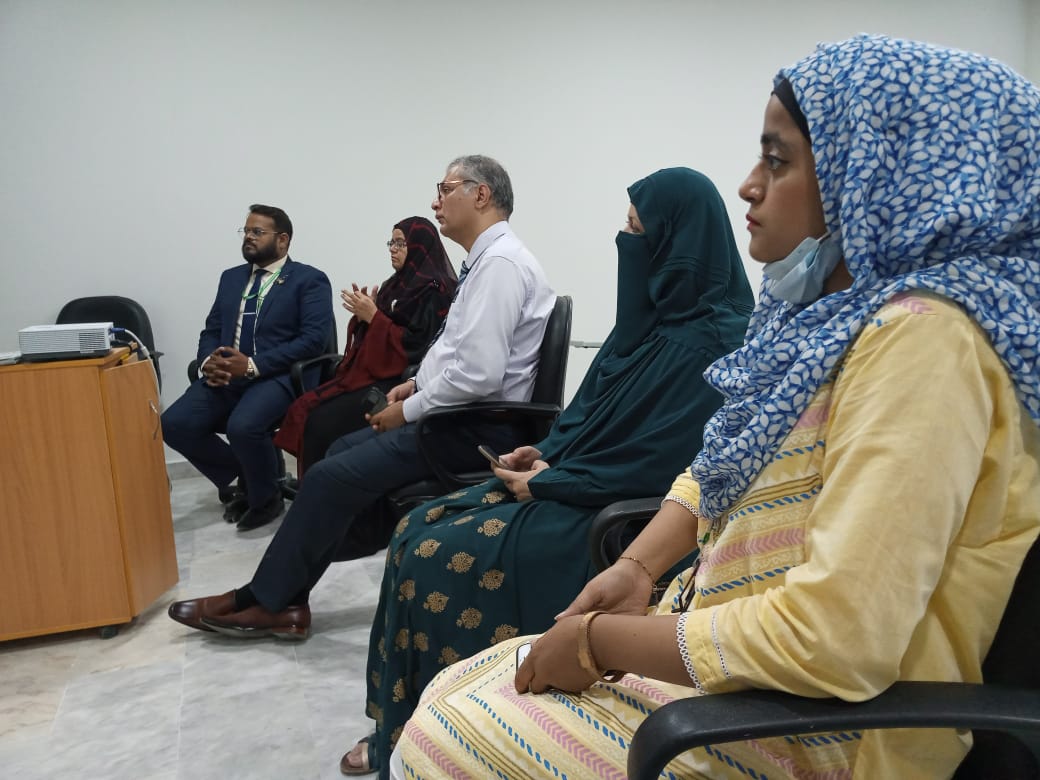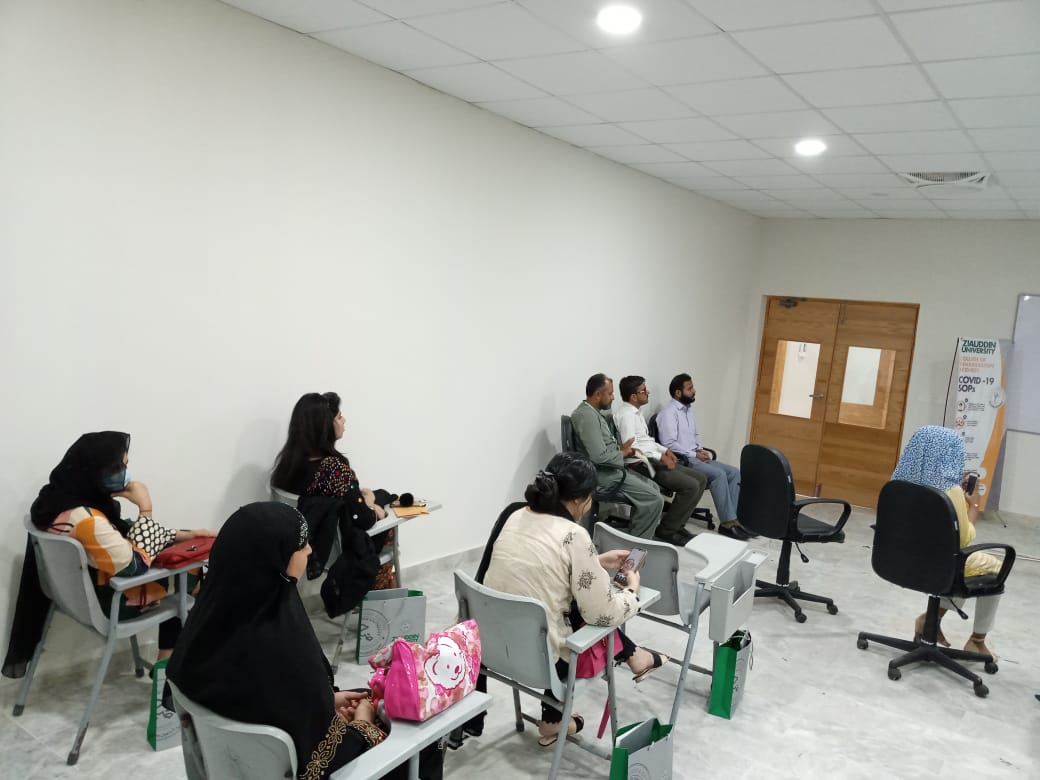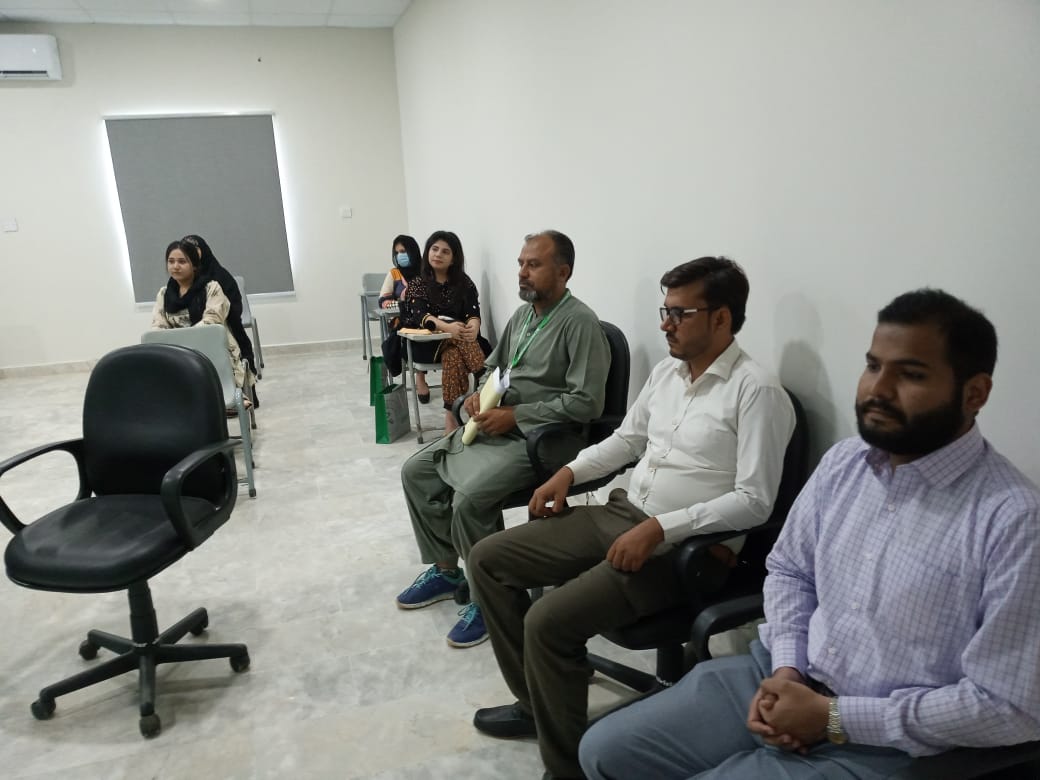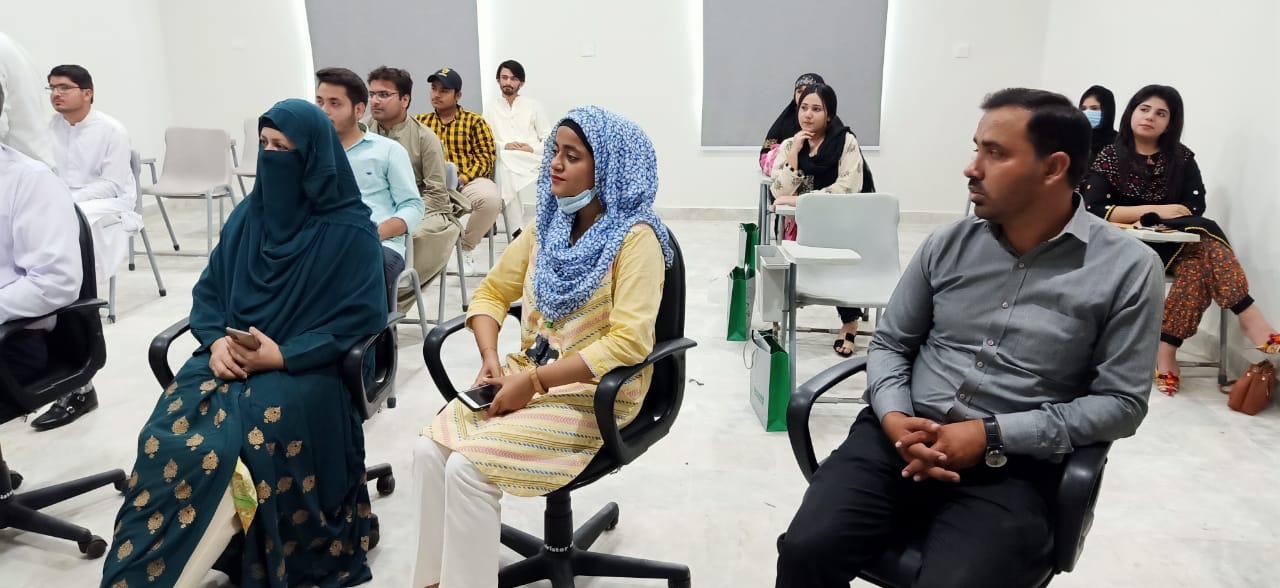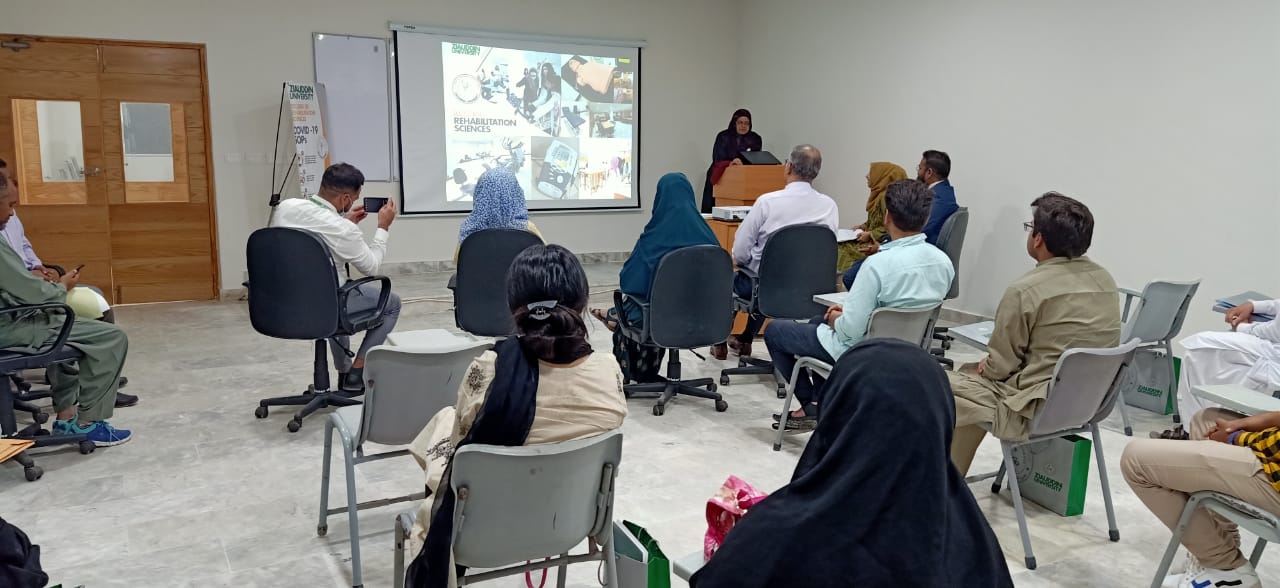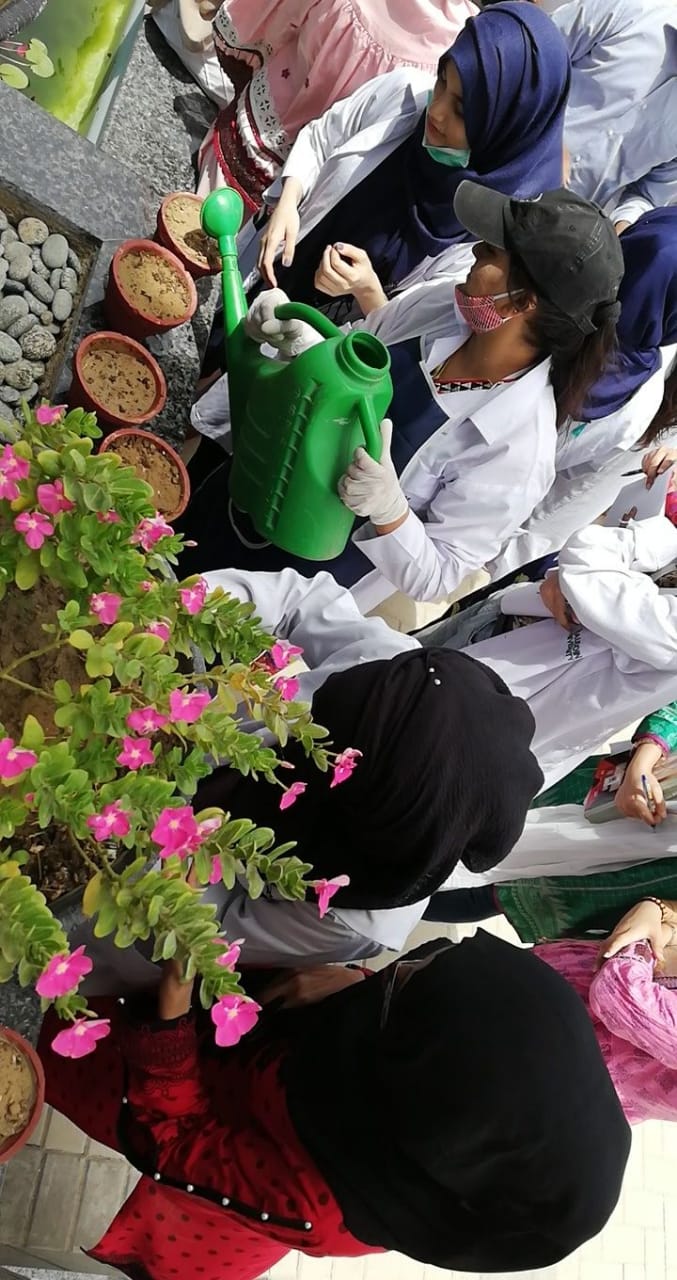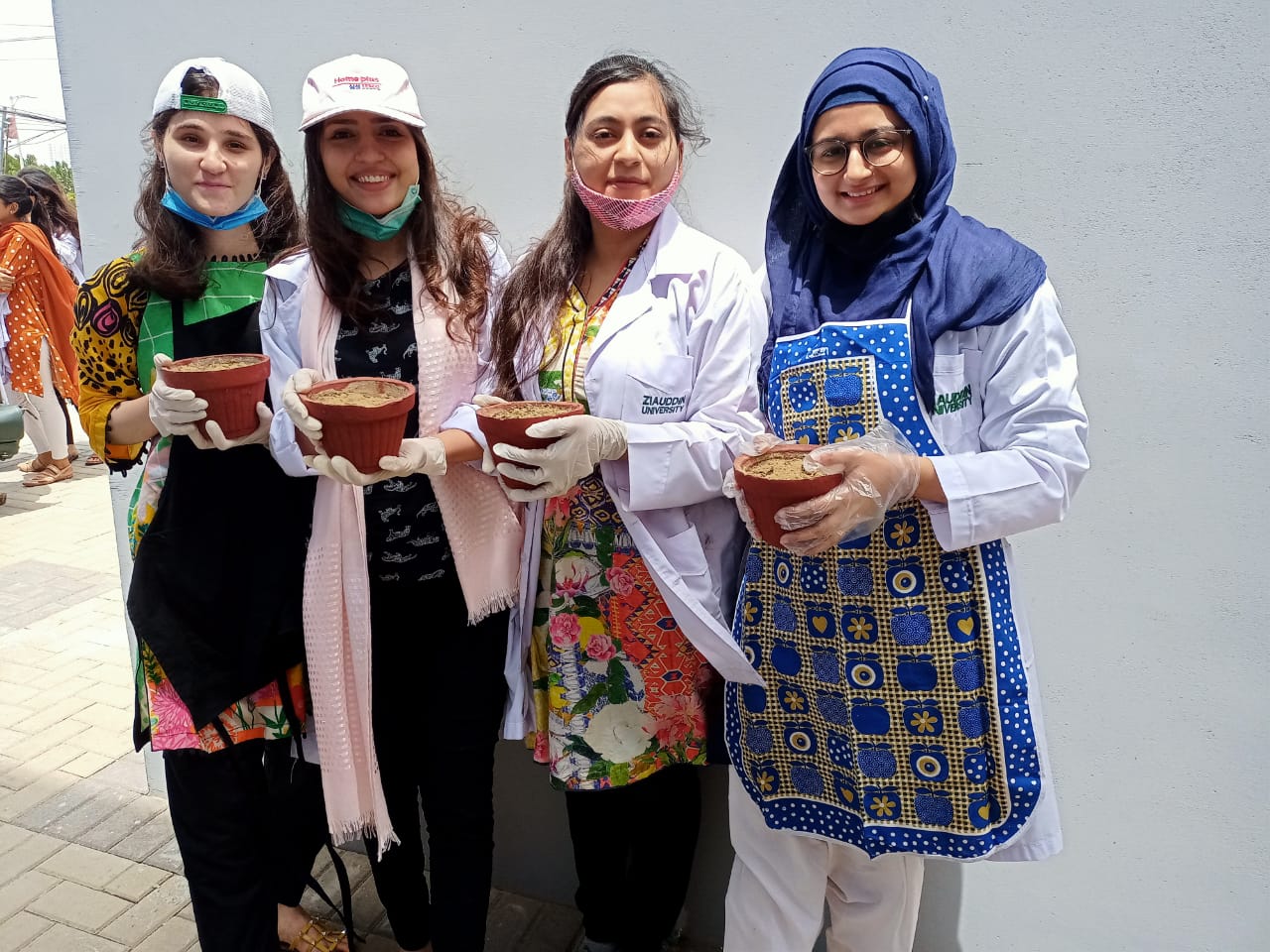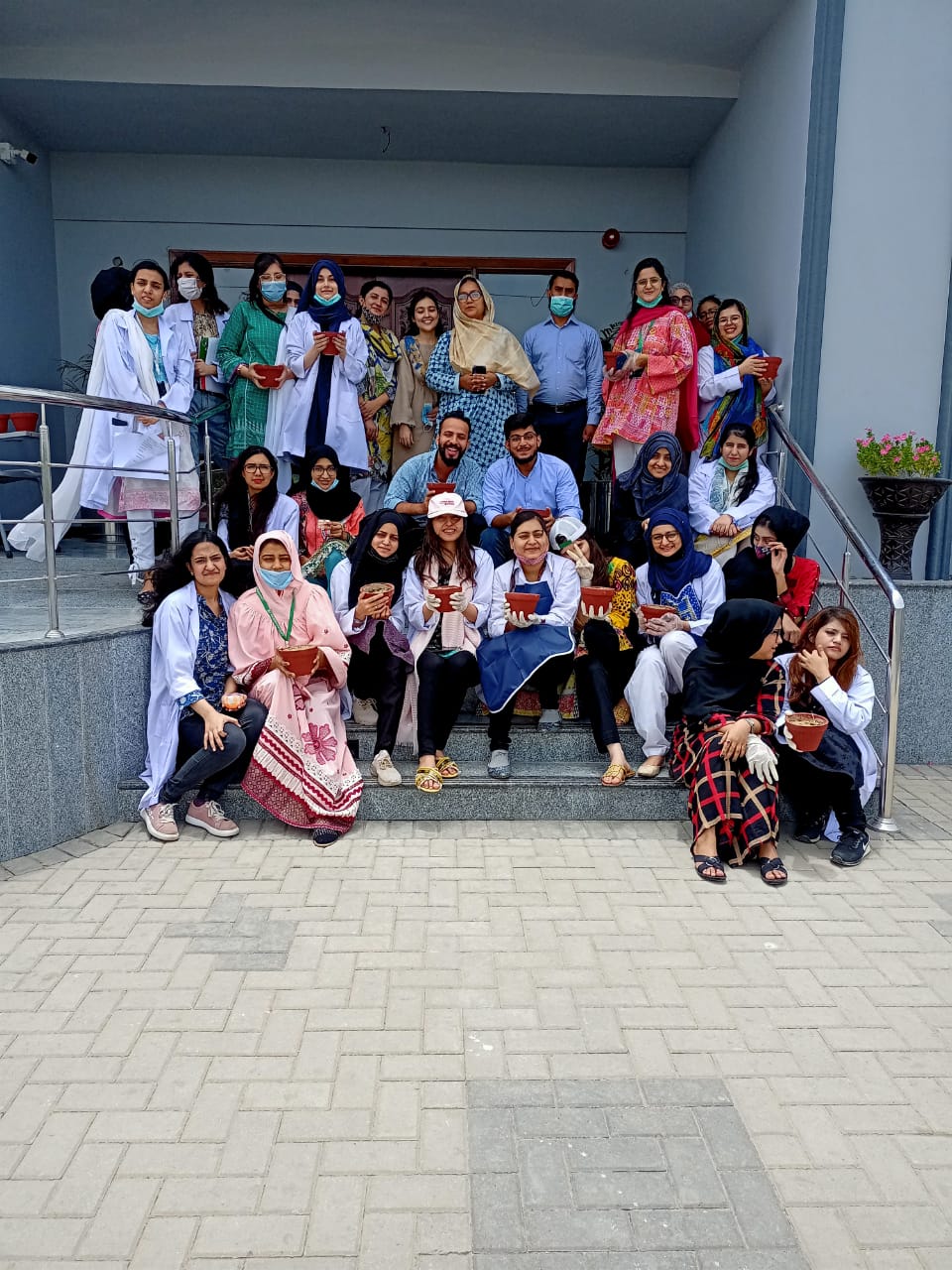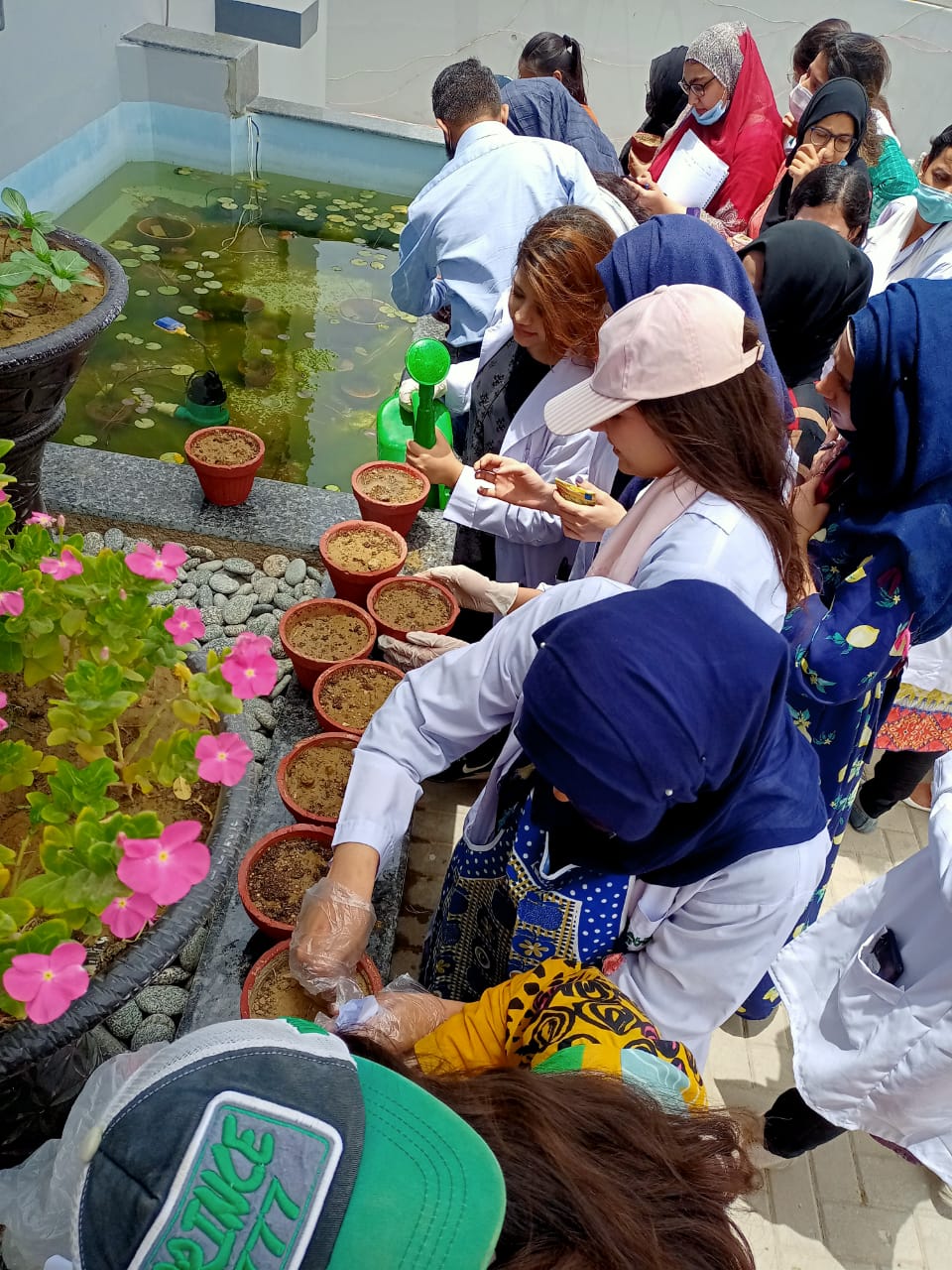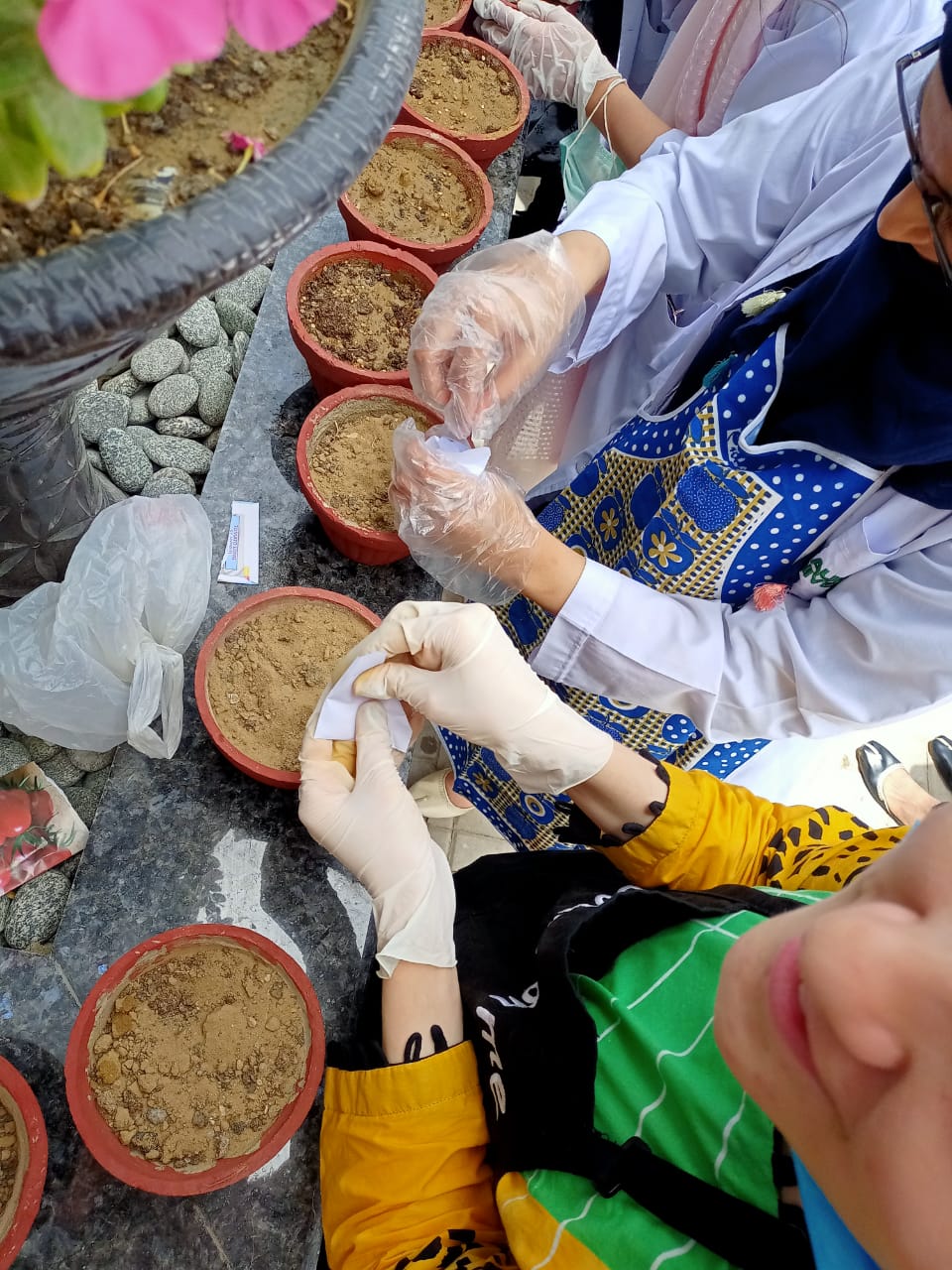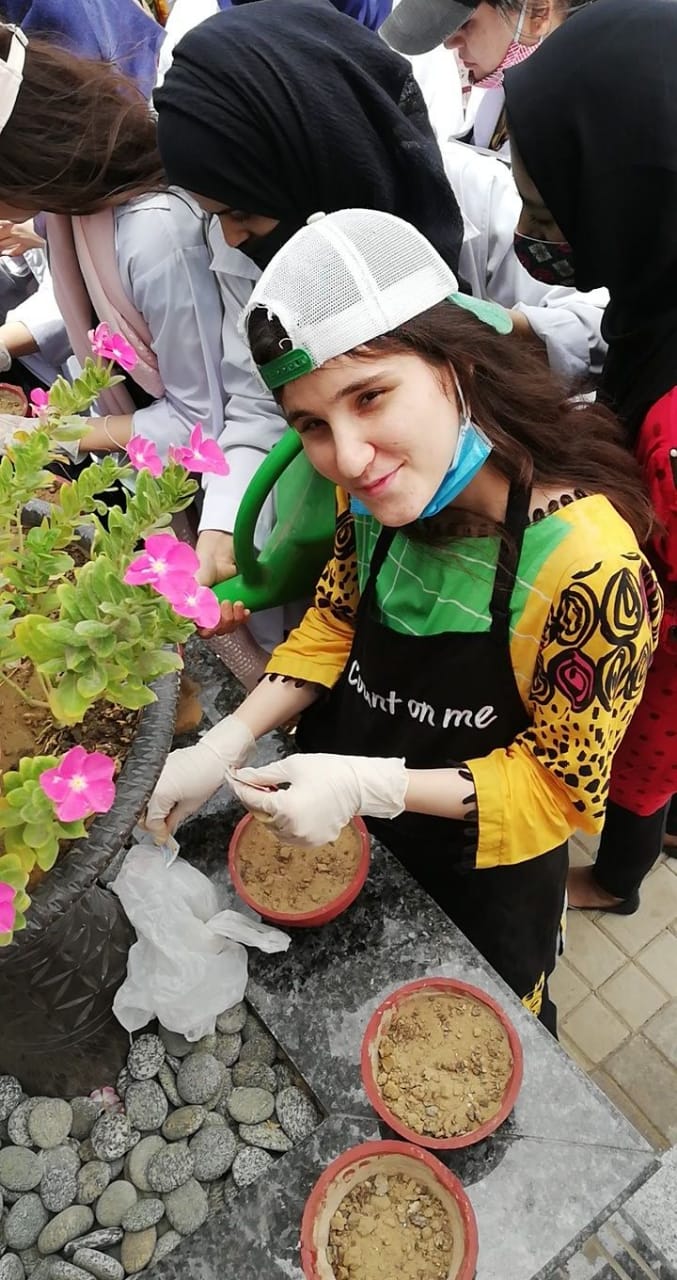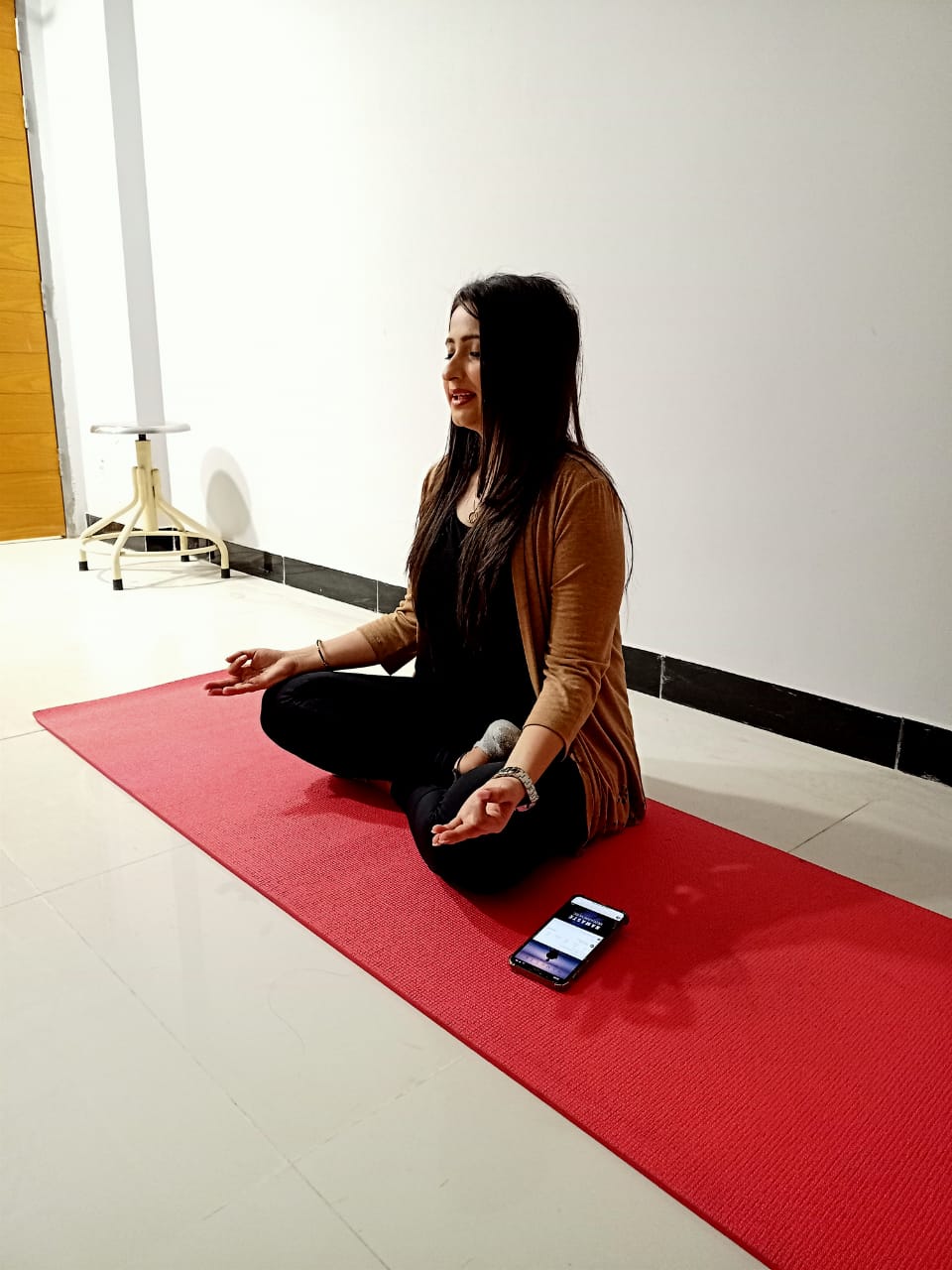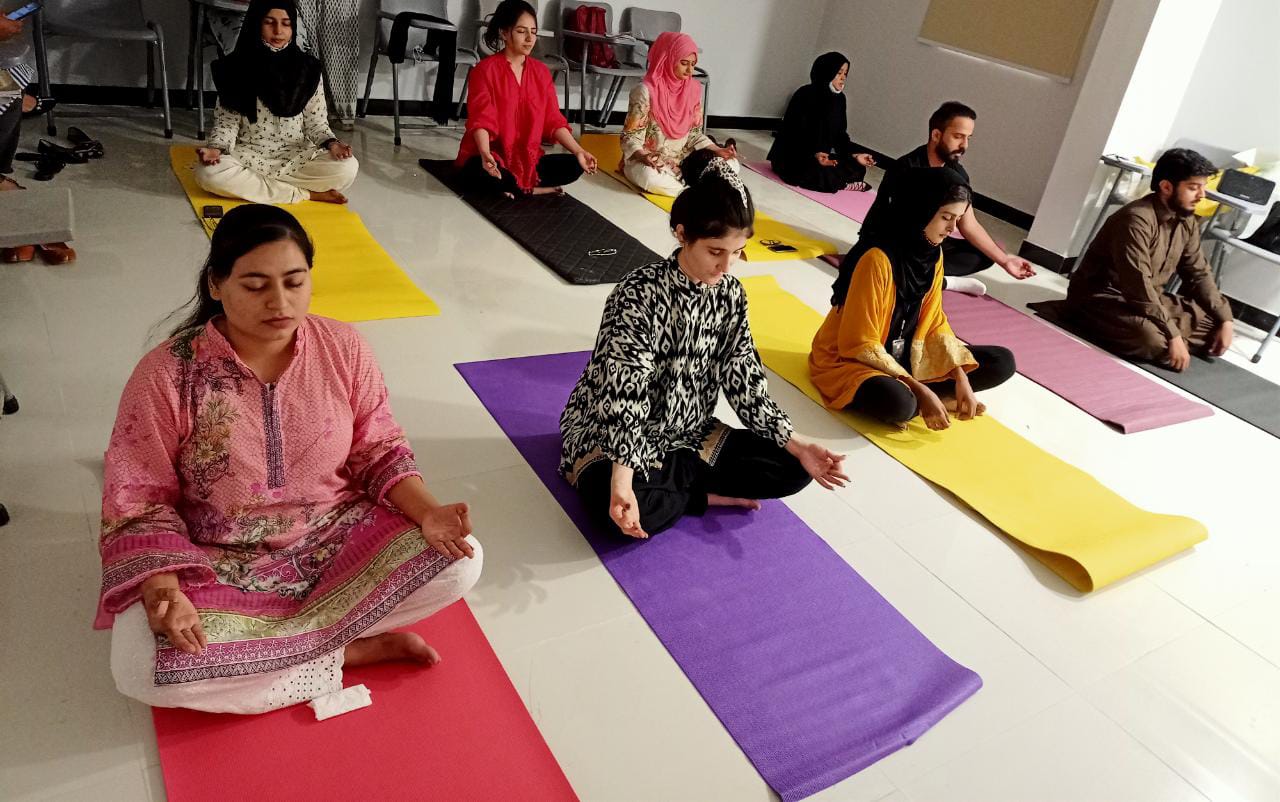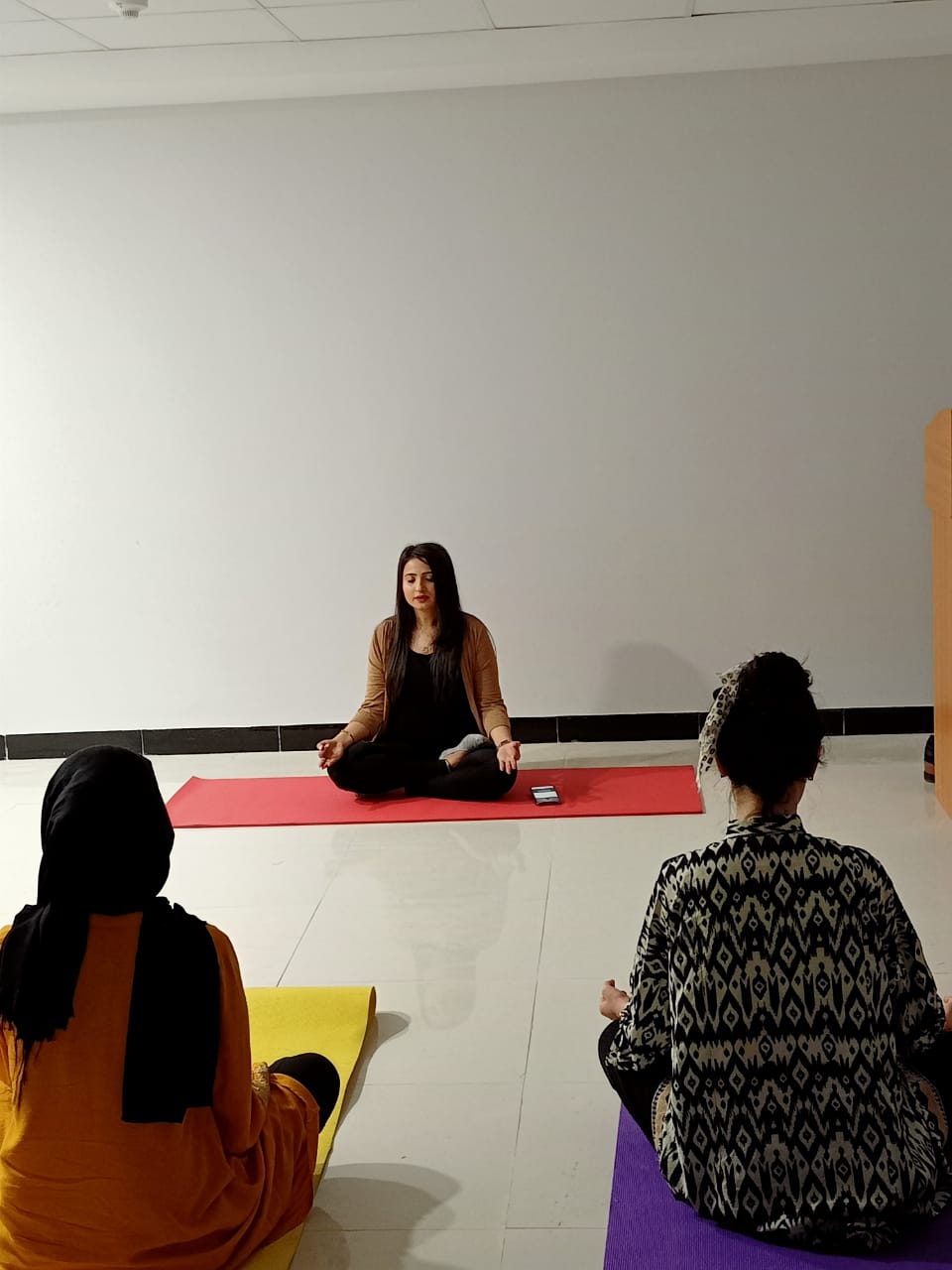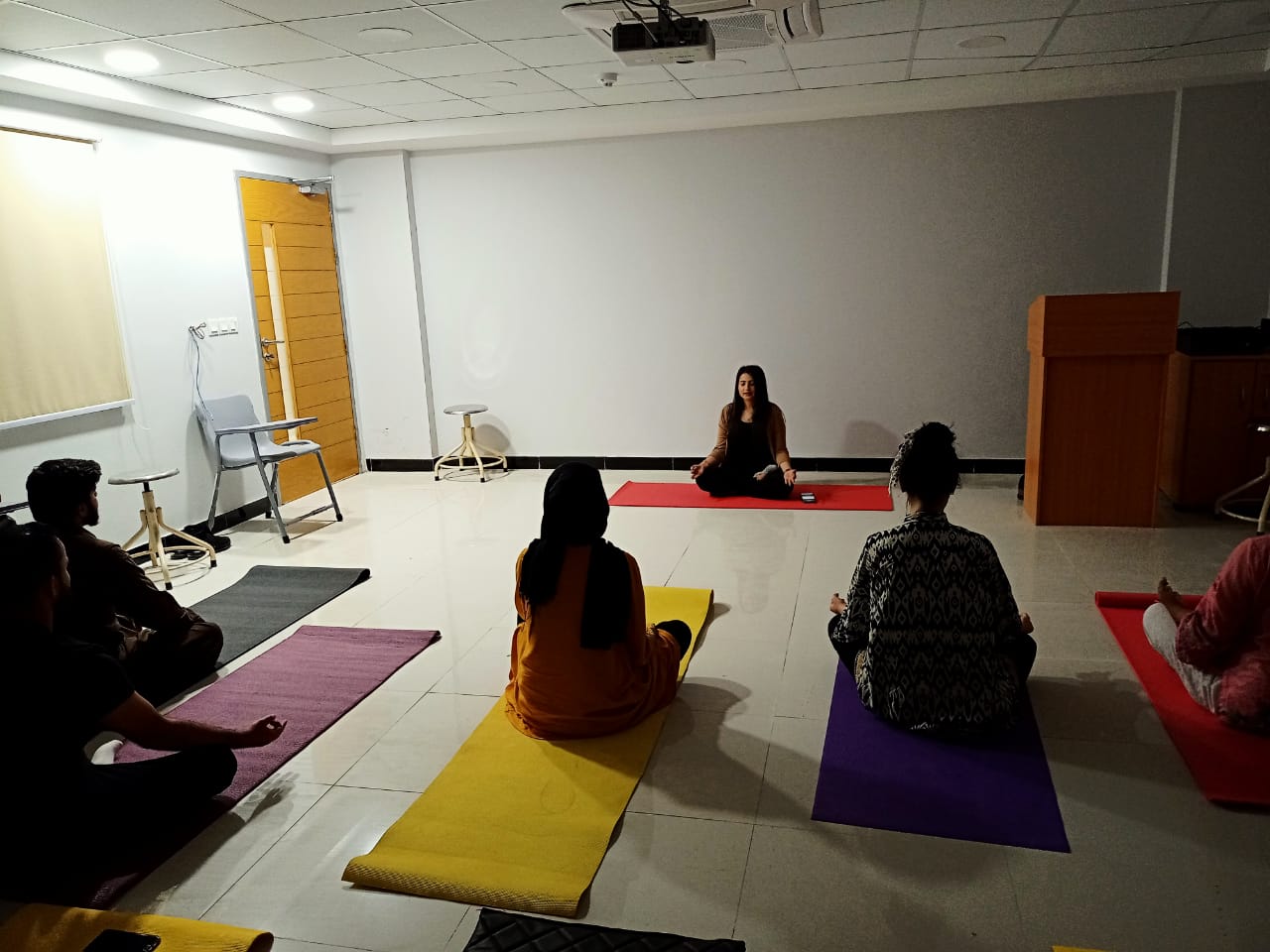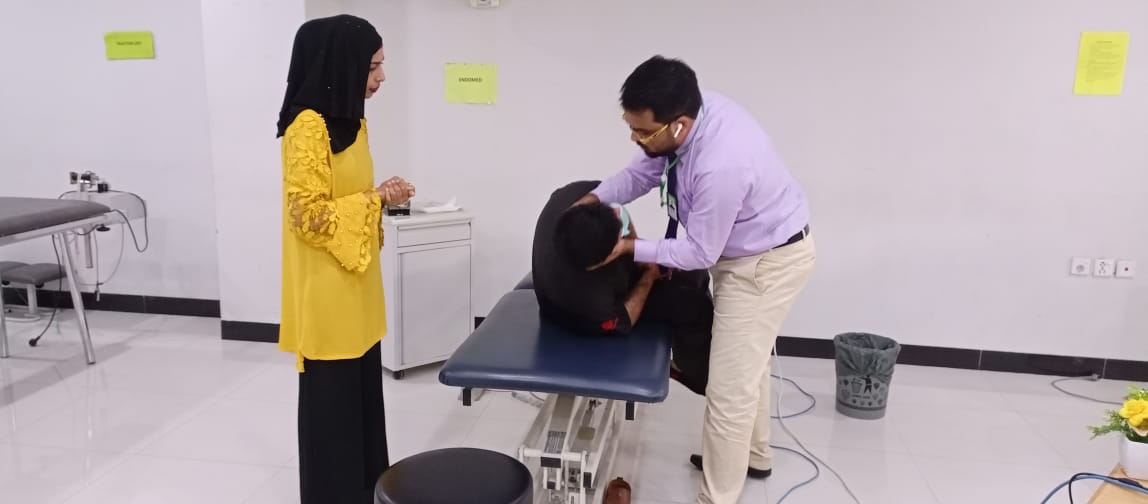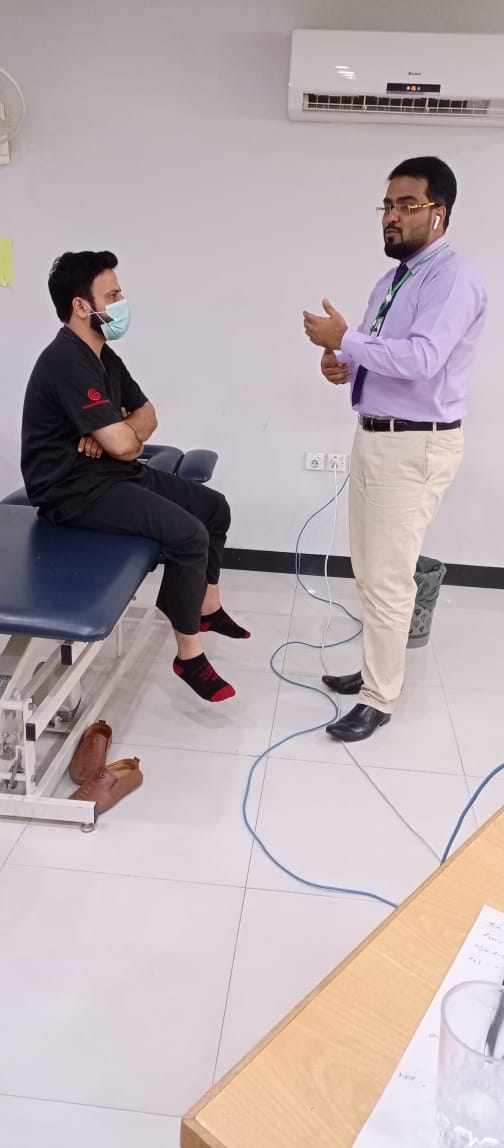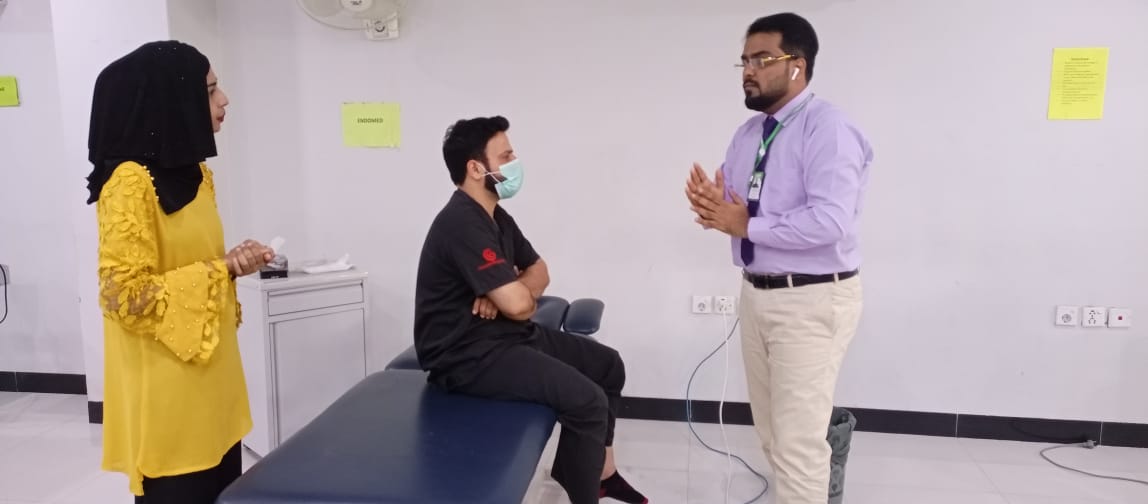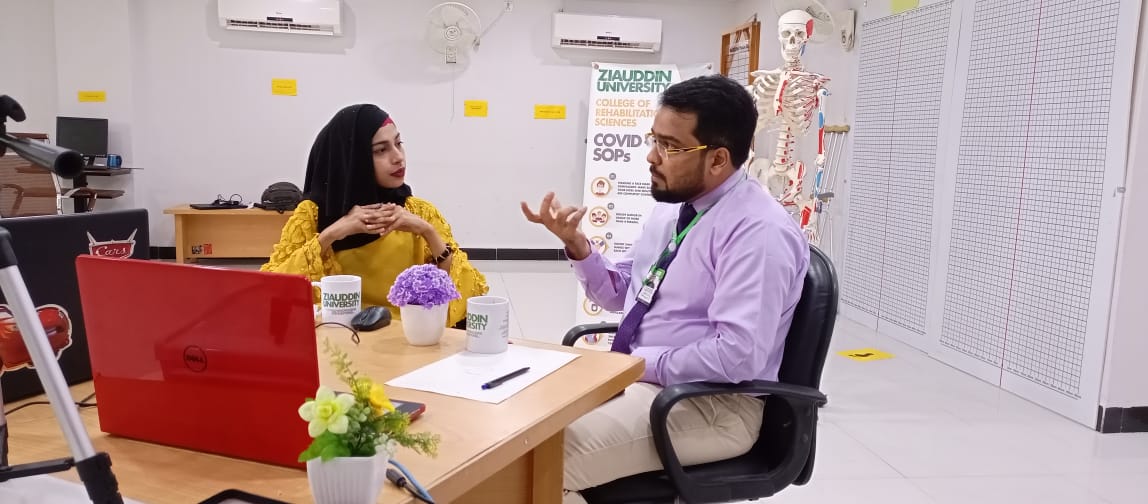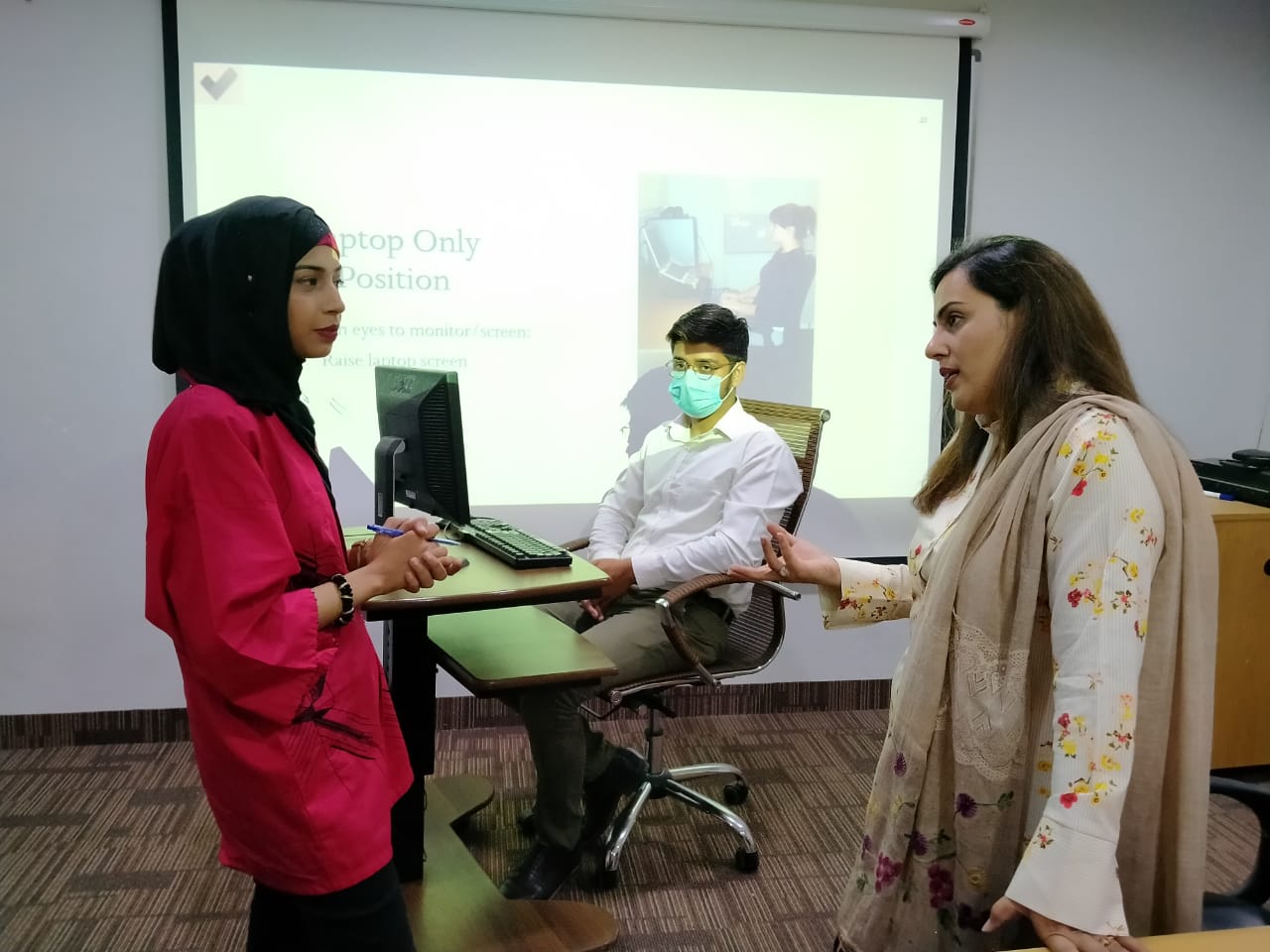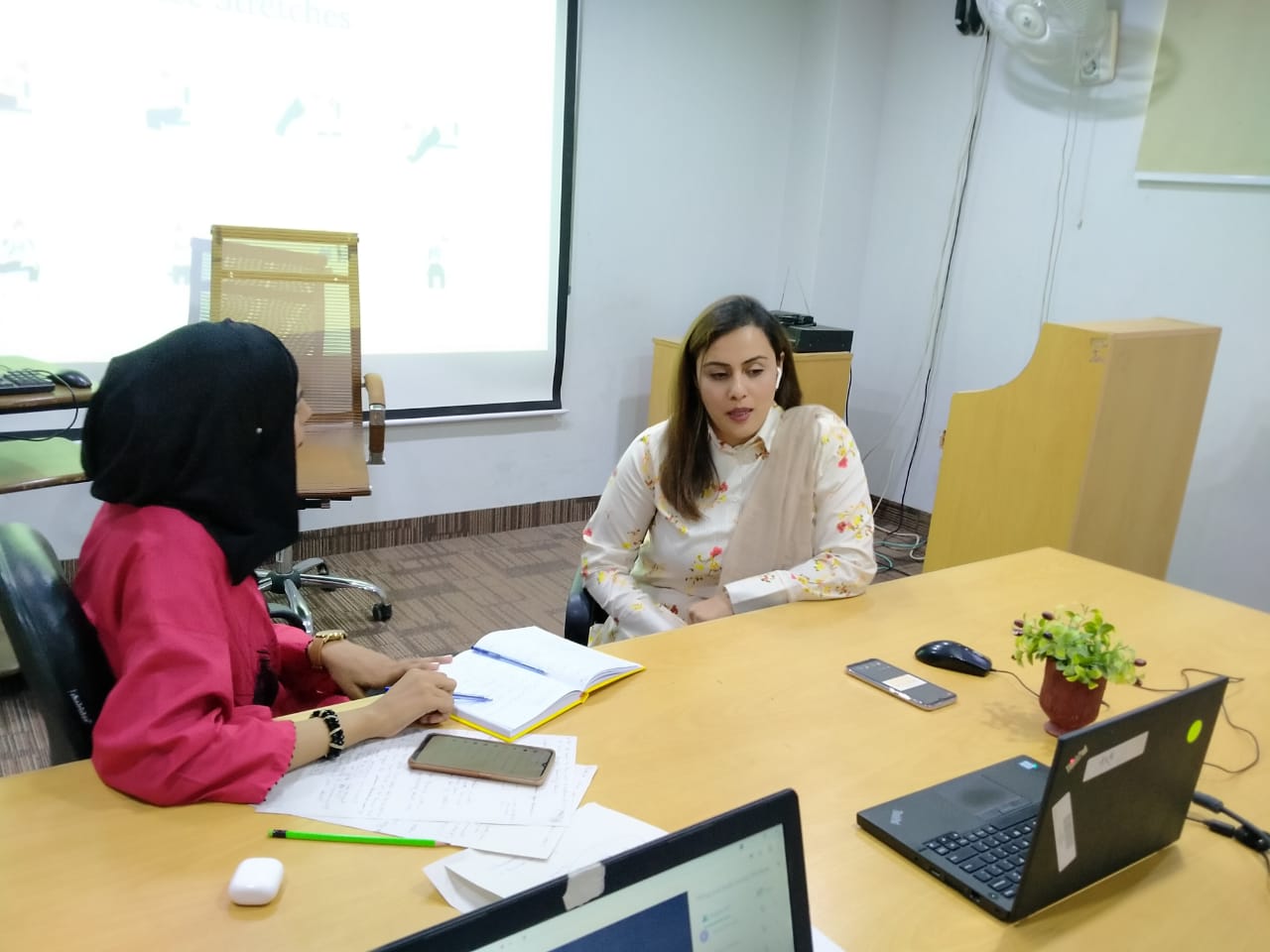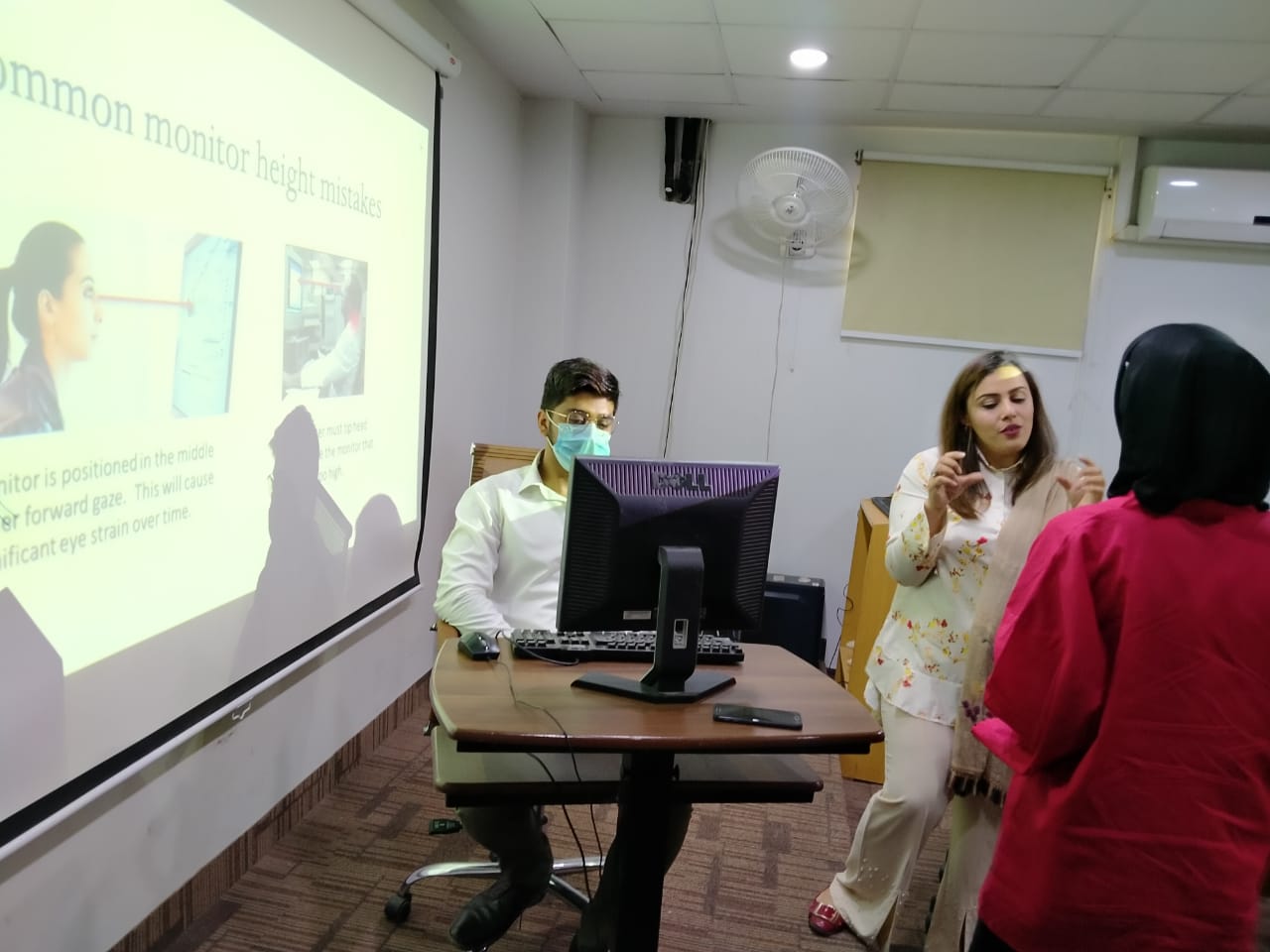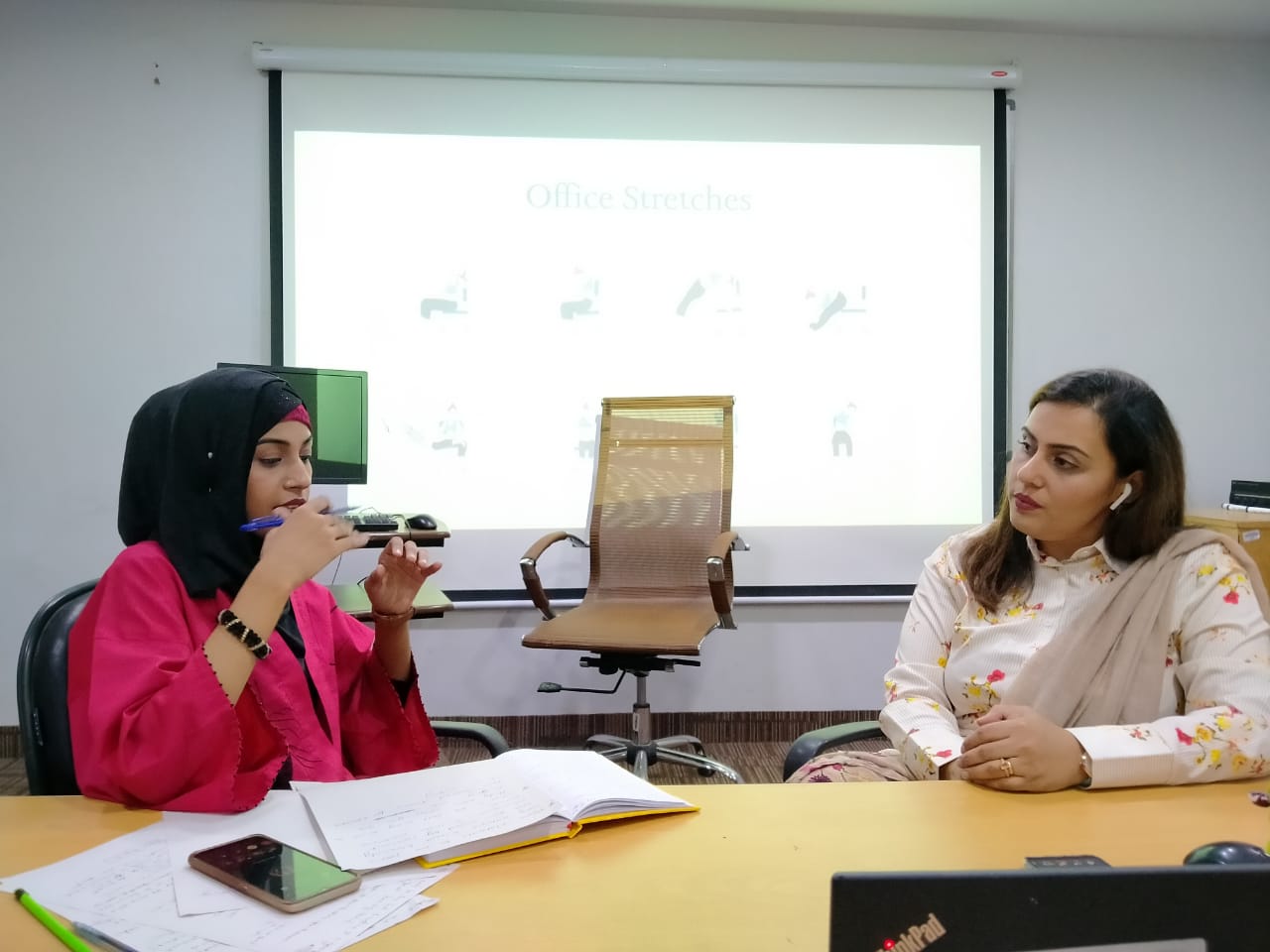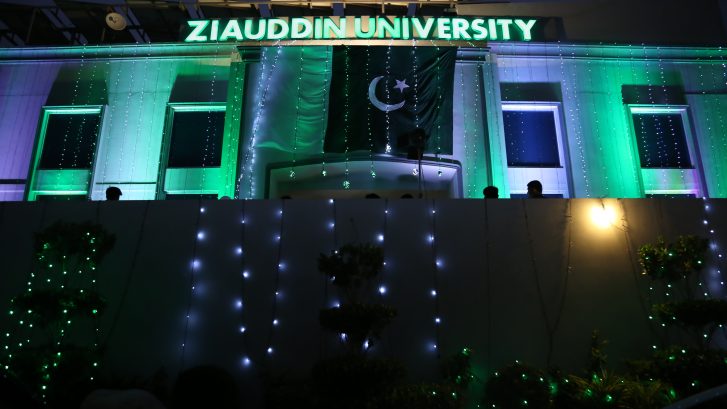

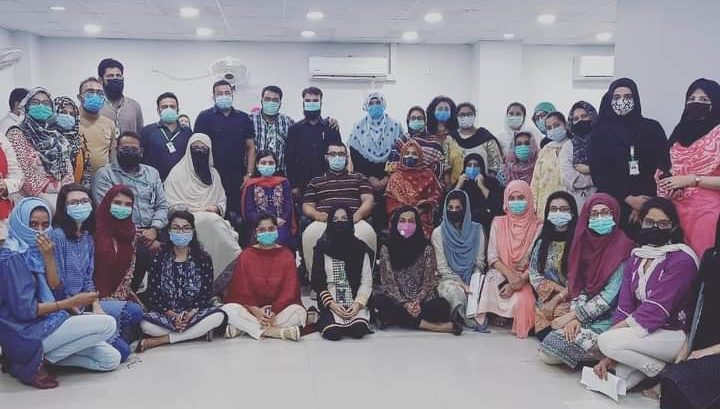
Workshop data for ZCRS
Working Saturday, the third Saturday of every month, is more likely a casual working day; but Ziauddin College of Rehabilitation Sciences, most of the time tries to invest the day in career, intellectual or skill building activities for its faculty members. Subsequently, a workshop session on “Standards of Designing BCQs and SEQs” was conducted on 17th July, 2021 by the DED team of ZCRS. The session consisted of basic understanding of the QBS system, characteristic constituents of questions including Cognitive, difficulty and importance levels; structure and construct of One Best as well as Short Essay Questions and its practical implementation. At the end of the session, the audience’s attention was recaptured through interactive query and practice sessions on different aspects of the subject. We were glad to receive such an overwhelming response from the participants.
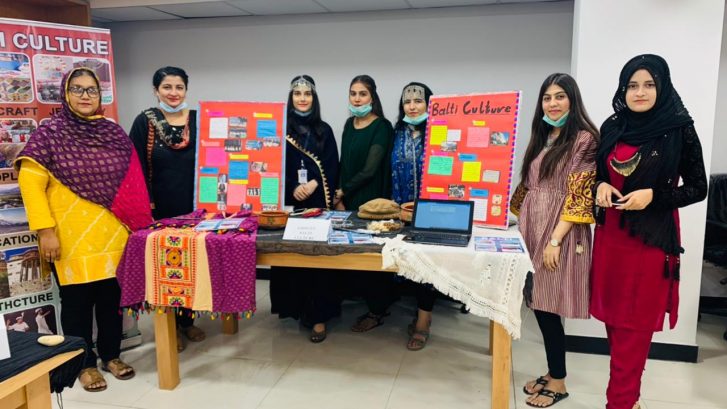
“CULTURE EXHIBITION” BATCH III
DATE: 15TH July
Reviving the heritage of indigenous cultures and embracing the diversity of societies globally. Occupational Therapy Department at Ziauddin College of Rehabilitation Sciences organized “Cultural Exhibition”. The students of Batch III, Semester IV, 2nd year represented Kohistani, Balti, Kalashi, Indus Valley Civilization, and Quechua Culture from Peru. They showcased each distinct culture highlighting their unique beliefs, religion, clothing, ornaments, architecture, and geography with great zest. They were dressed in their festive clothing and jewelry. The principal Ms. Sumaira, H.O.D Ms. Neelum, Sir Nabeel, Ms. Saima and other faculty members visited each stall and promoted exchange of knowledge.
Learning about other cultures helps occupational therapy students understand different perspectives within the world, it assists in dispelling negative stereotypes and personal biases about different groups. Occupational therapists, being an advocate for embracing differences, highlighted cultural diversity which helps recognize and respect “ways of being” that are not necessarily our own. In addition, it helps build bridges to trust, respect and build acceptance along with fostering inclusion irrespective of diversity.
Occupational therapy practitioners support the health and participation of clients through engagement in occupation, which is inextricably linked with culture. Thus, promoting indulgent and improved ability to adequately serve individuals who look, think and behave differently from us.
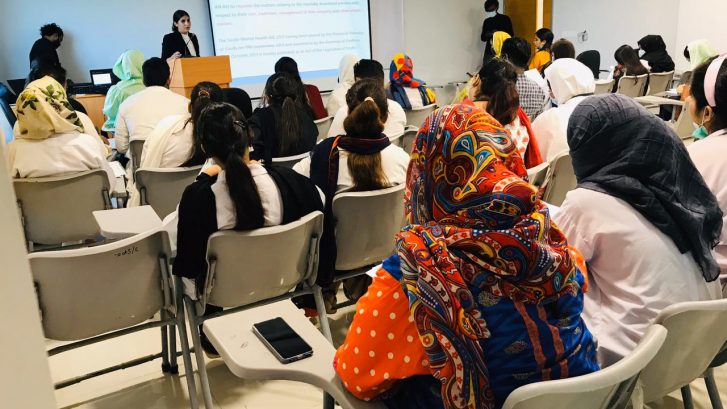
MENTAL HEALTH ORDINANCE OF PAKISTAN AND FORENSIC REHABILITATION 25th June 2021
The Department of Occupational Therapy at Ziauddin College of Rehabilitation Sciences, Ziauddin Faculty of Law and School of Forensic Mental Health Scotland jointly organized a seminar on Mental Health Ordinance of Pakistan and Forensic Rehabilitation for undergraduate students of Doctor of Occupational Therapy on 25th June 2021. The objective of this seminar was to educate the occupational therapy students about how the legal system of Pakistan protects the rights of people with mental illness and commit crimes. Ms. Sadia Qureshi, Senior Law Counsel at Sindh Healthcare Commission discussed legal issues concerning the assessment, treatment, and care of people with mental illness, while Dr. Khuram H Khan Consultant Forensic Psychiatrist at The State Hospital Carstairs National Health Service UK, talked about forensic services available at Pakistan and some joint initiatives to educate the community stakeholders about the need and importance of forensic rehabilitation.
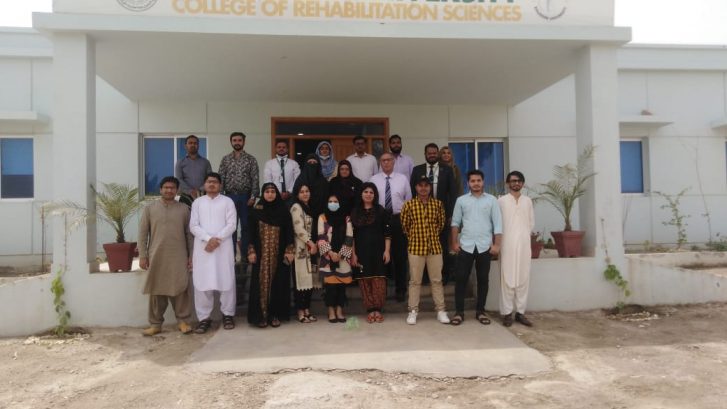
Doctor of Physical Therapy, Batch I (2021), Orientation Day Ceremony at Ziauddin College of Rehabilitation Sciences, Ziauddin University, Sukkur Campus
Doctor of Physical Therapy, Batch I (2021), Orientation Day
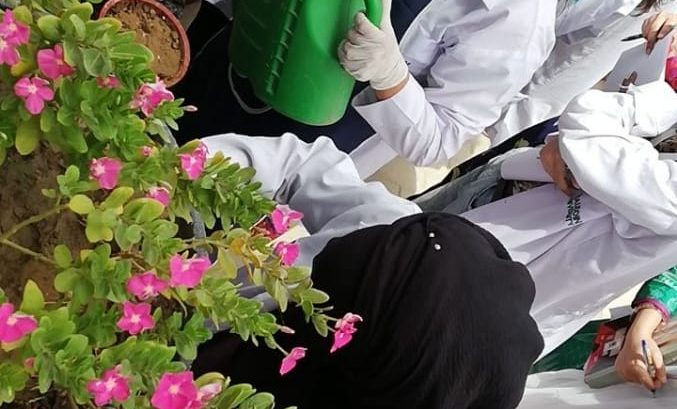
HORTICULTURAL THERAPY
Date: 21st July 2021
Time: 10 AM to 12 PM
Horticultural therapy is one of the intervention modalities at Occupational Therapy that
utilizes plants and plant-based activity to achieve specific goals within an established
treatment, rehabilitation, or vocational plan. Moreover, it is also used as a mode for
developing sensory sensation, mood, interest, focus, and emotional regulation.
One-day hands-on workshop on Horticultural therapy was organized by the Department of
Occupational Therapy of Ziauddin College of Rehabilitation Sciences, facilitated by Mr.
Abdul Majid, Manager horticultural, and Ziauddin University
Students of the Doctor of Occupational Therapy Program learned about the implementation
of horticultural therapy within various settings such as developmental, psychiatric, sensory
impairment, geriatric, and medical conditions of individuals. They also learned essential
skills that are required for effective occupational therapy and activity analysis to improve
occupational performance in life skills.
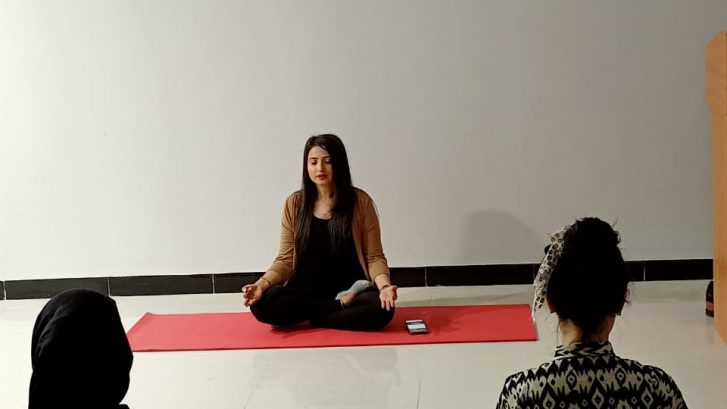
YOGA AND MINDFULNESS THERAPY
Mind fullness therapy: An Occupational Therapy Intervention in Mental Health
One Day Hands-on Workshop
Date: 18th June 2021
Time: 11:30 AM to 1 PM
Department of Occupational Therapy, Zia Uddin College of Rehabilitation Sciences organized an introductory session on Mindful Yoga technique. Mindful Yoga is based on Buddhist-style mindfulness practice which uses yoga as a therapeutic activity to decrease mental and bodily stress. The objective of introductory sessions was to promote advocacy and the benefits of yoga in mindfulness therapy as an effective intervention tool among students of Doctor of Occupational Therapy on a wide range of populations. Students learned to perform and guide others about relaxation breathing exercise patterns. This session was conducted by Ms. Saman Aly, a foreign qualified Yogi who has completed 100 hours of Yoga teacher training from Thai Yoga institute Thailand, and Nutrition Health Coach L-1 Precision Nutrition –Canada
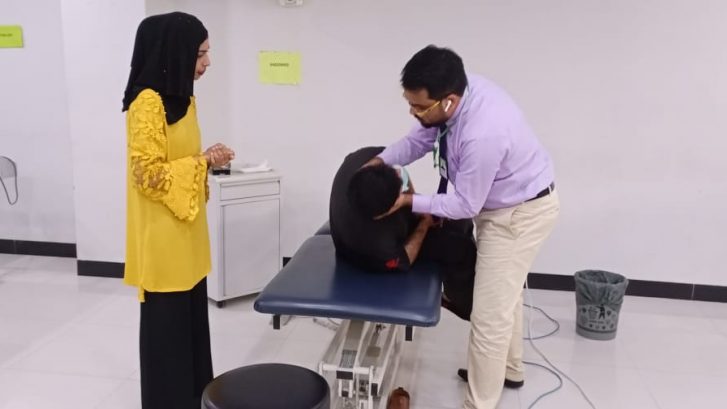
An Introduction to Vestibular Rehabilitation
A webinar was conducted at Ziauddin College of Rehabilitation Sciences by Dr. Ahad Hasan, PT., on 04th June 2021 titled as “An Introduction to Vestibular Rehabilitation”. In the webinar discussion was held on balance disorders as being one of the most common type of balance disorders caused by ear dysfunction encountered by individuals around the globe. Understanding Vestibular system is very significant in assessment and treatment of disorders. The role of the semicircular canals been found to play a key role in the symptoms caused by the Vestibular system. Therefore, it is of great importance to understand these aspects while treating Vestibular disorders. Different forms of Positional Testing were explained, with special focus on Head Impulse Test, Examination of the Vestibulo Ocular Reflex, Dix-Hallpike test for the assessment of symptoms. Epley’s maneuver, the Liberatory (Semont) maneuver, and Brandt–Daroff exercise maneuver is a good adjunct for rehabilitation purpose which was practically demonstated and discussed with in the session. Hence, knowledge and use of techniques is crucial for assessing and treating Vestibular disorders.
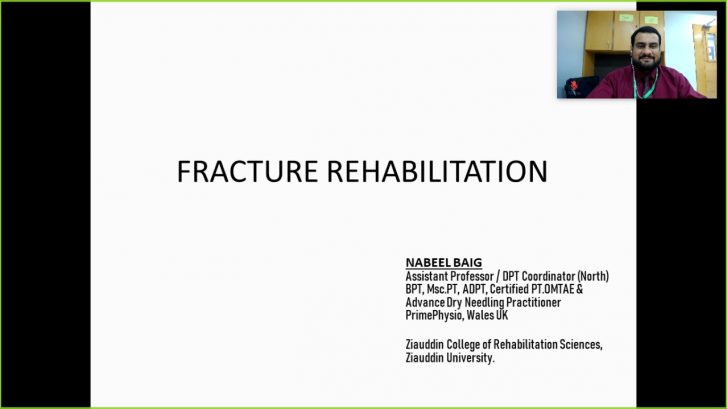
Fracture rehabilitation
A guest speaker webinar session was conducted by Mr. Nabeel Baig, Assistant professor and DPT co-ordinator North Ziauddin College of Rehabilitations Sciences, for 4th year MBBS students of Karachi Medical and Dental College on 25th May 2021 entitled as “Fracture Rehabilitation”. The webinar focused on the post-fracture rehabilitation foregrounding its appropriate techniques and management. Furthermore, it also accentuated the role of a physical therapist in managing post-surgical patients. The goal of the webinar was to highlight the importance of a multidisciplinary team and to appraise both the rehabilitators and physicians for their roles. The webinar also correlated current methods of treatment with evidence-based practice. At the end of the session the presenter was applauded for his phenomenal knowledge and effort to connect the disciplinary professionals indulged in patient management.
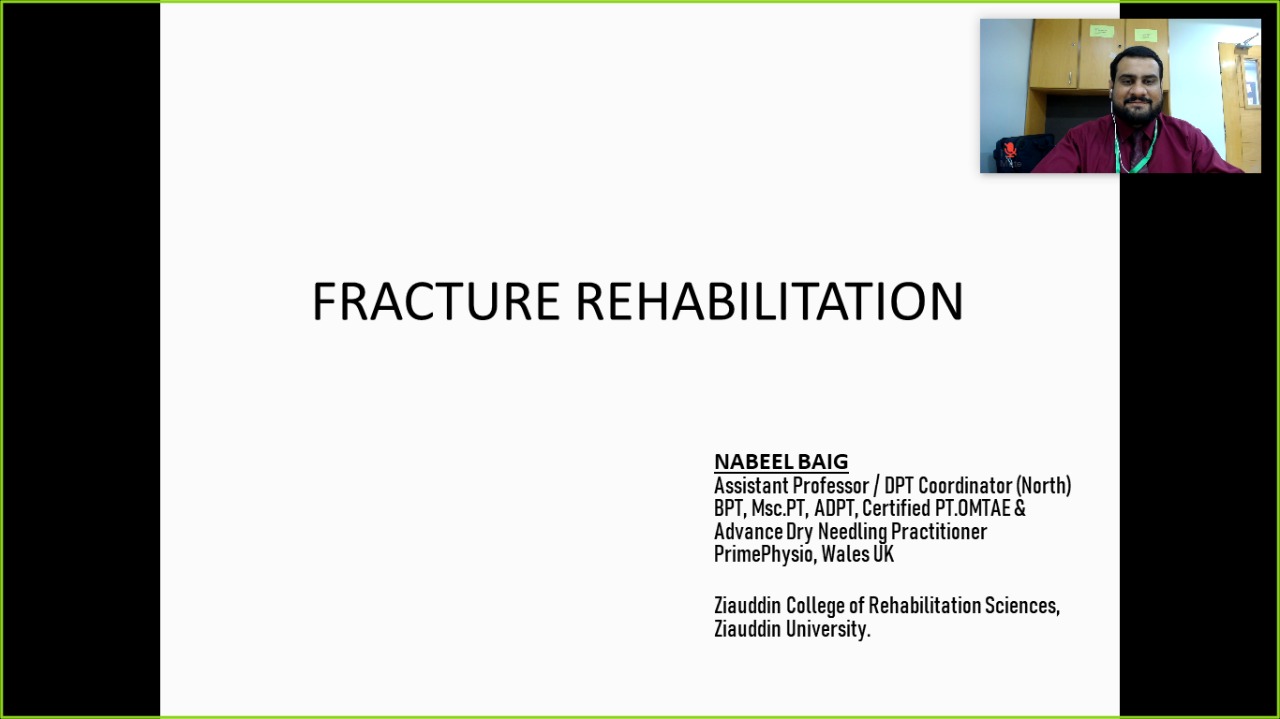
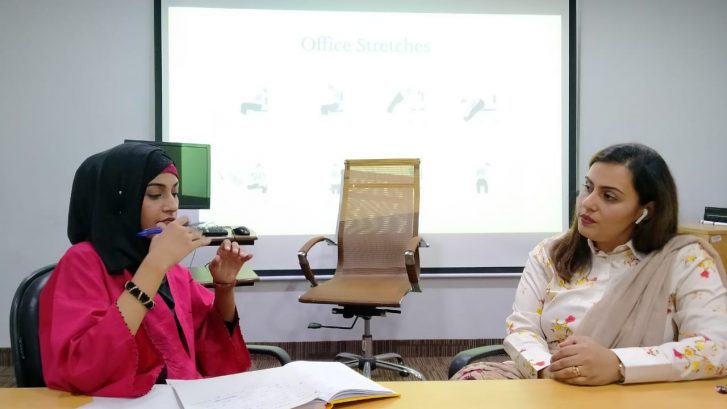
Fitting your body to your workspace
A webinar was conducted by Dr. Fatima Hamza (PT) at Ziauddin college of Rehabilitation sciences on 28th April 2021 on the topic of “fitting your body to your work place”. that main emphasis of the webinar was to discuss the importance of ergonomics in the routine prolonged sittings during the work times. During the discussion main point of focus was to incorporate healthy sitting habits to avoid various discomforts that may lead to musculoskeletal disorders. During the practical sessions proper positioning in chair was demonstrated with reference to adjustment of the chair with respect to body, positioning of the feet on the ground, position of the mouse and keyboard and adjustment of monitor height. in addition to all this some stretches were also demonstrated that should be incorporated in the daily office routine in order to promote healthy sitting and breaking the habit formation of the muscles. the session was followed by an elaborate QnA session that lasted for 45 mins and numerous questions from the audience were satisfied. Over all this was a productive session that helped many to improve their seating habits and thus maintain a healthy posture.

